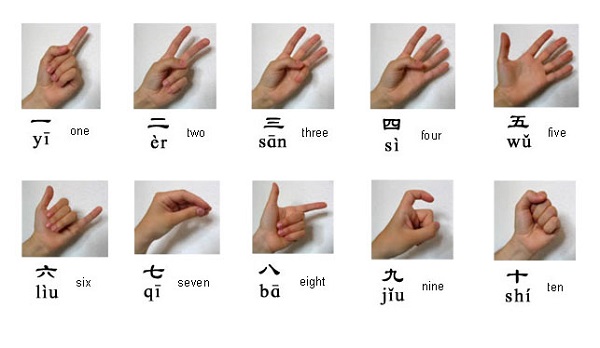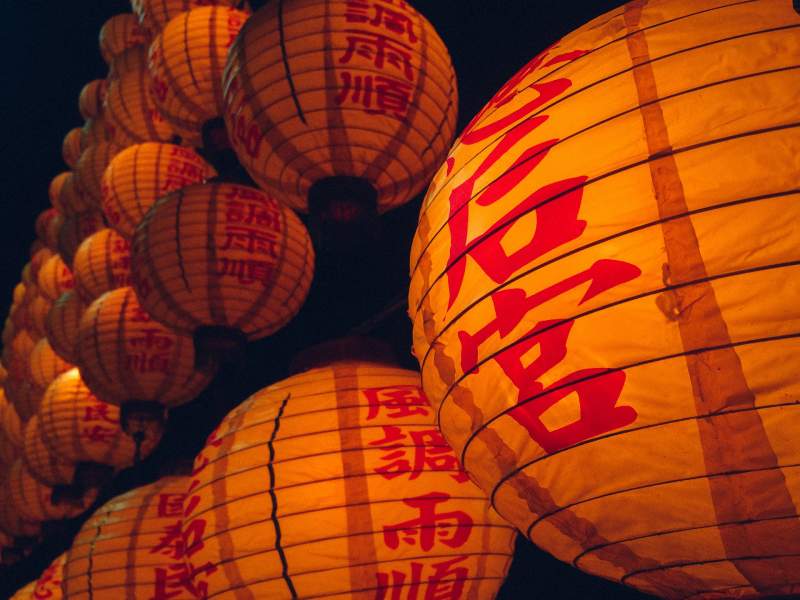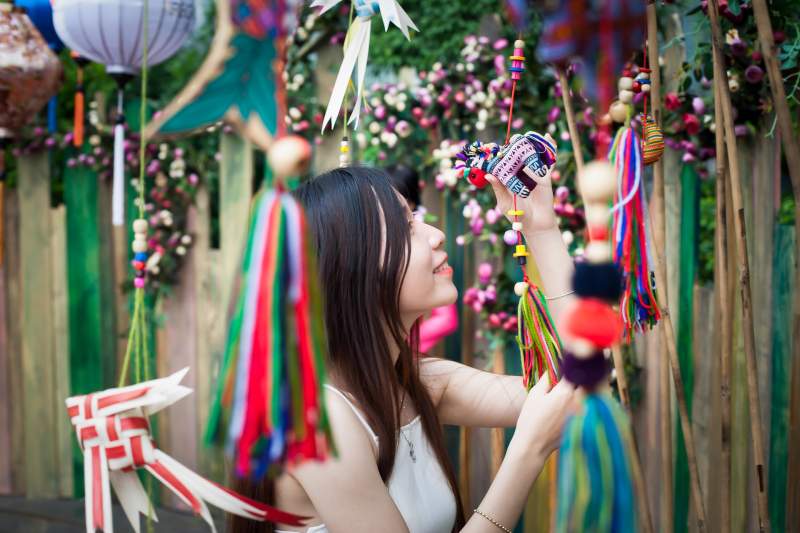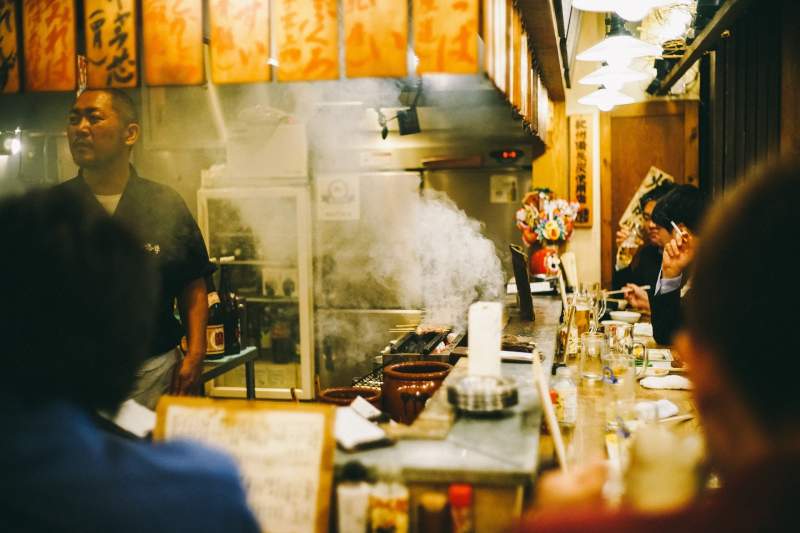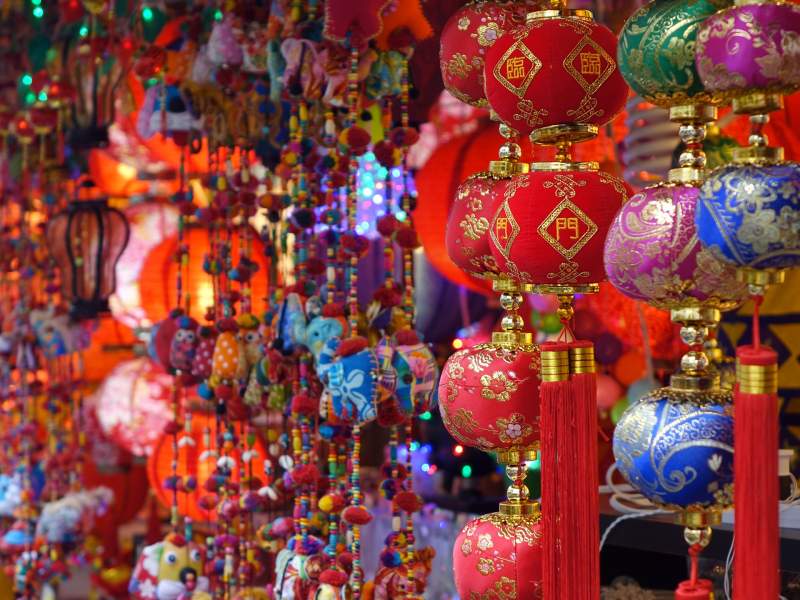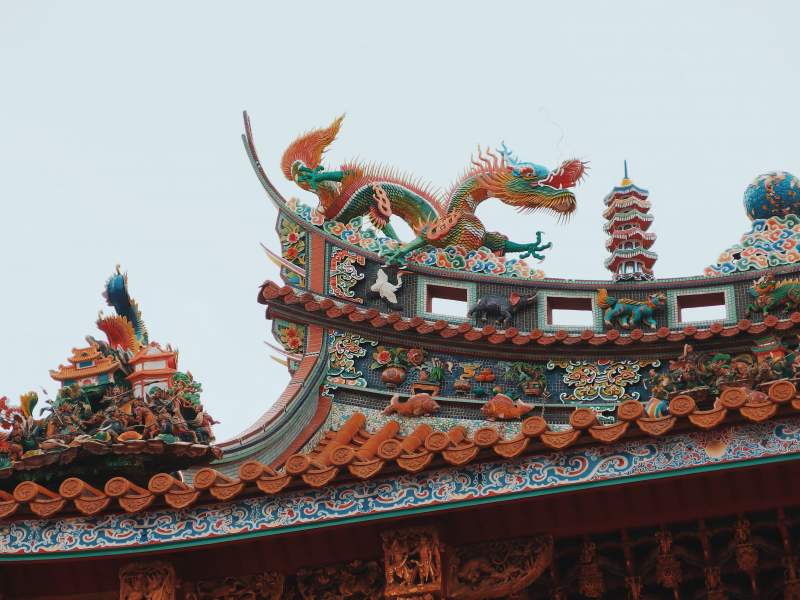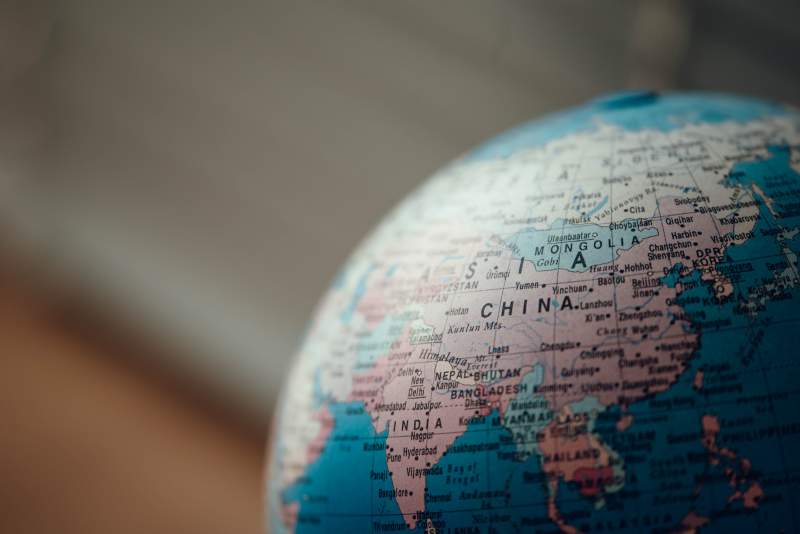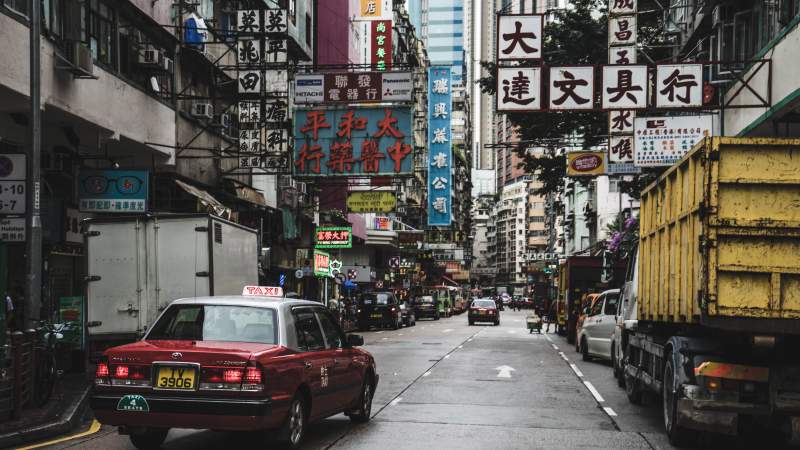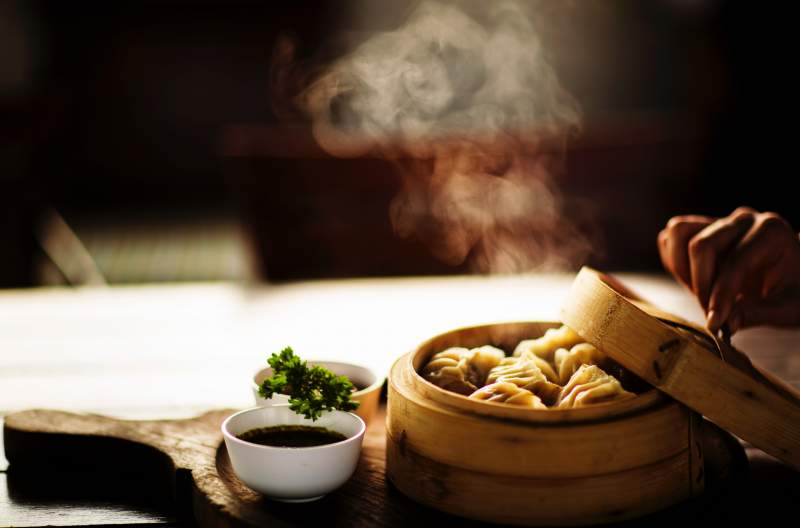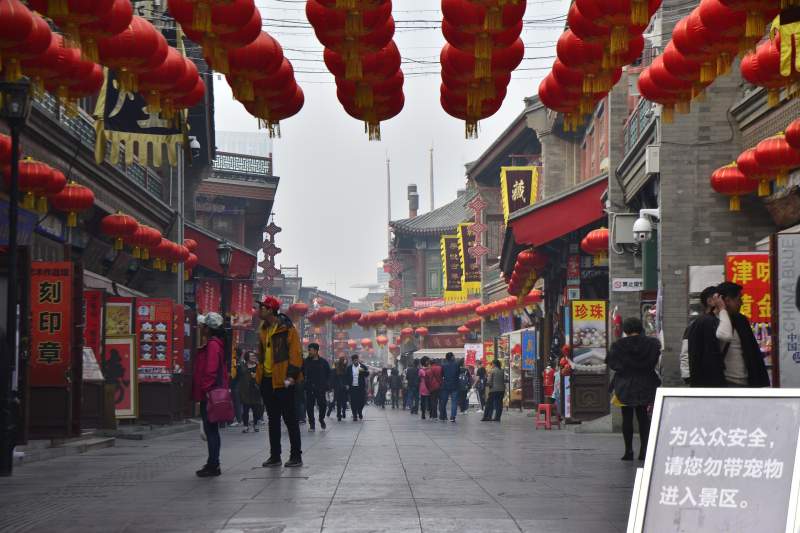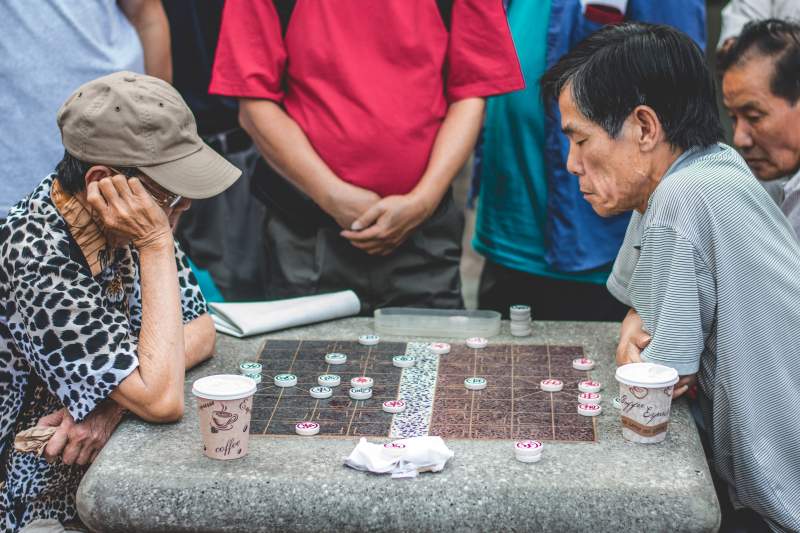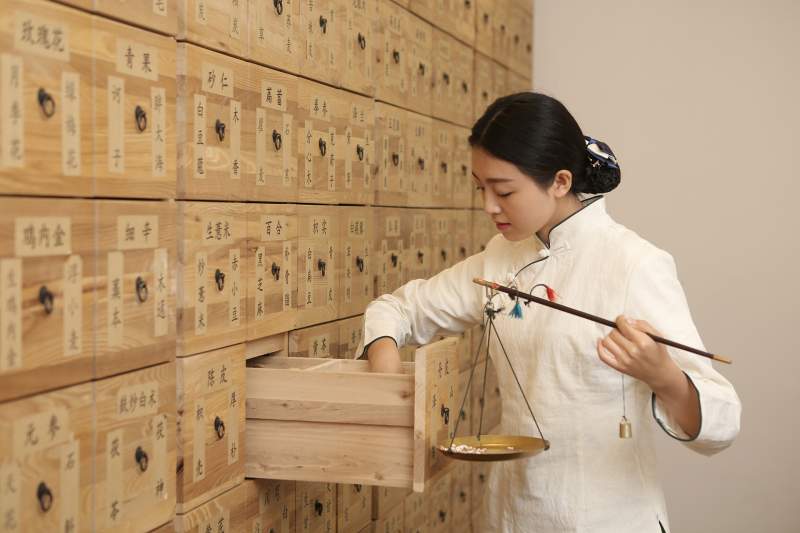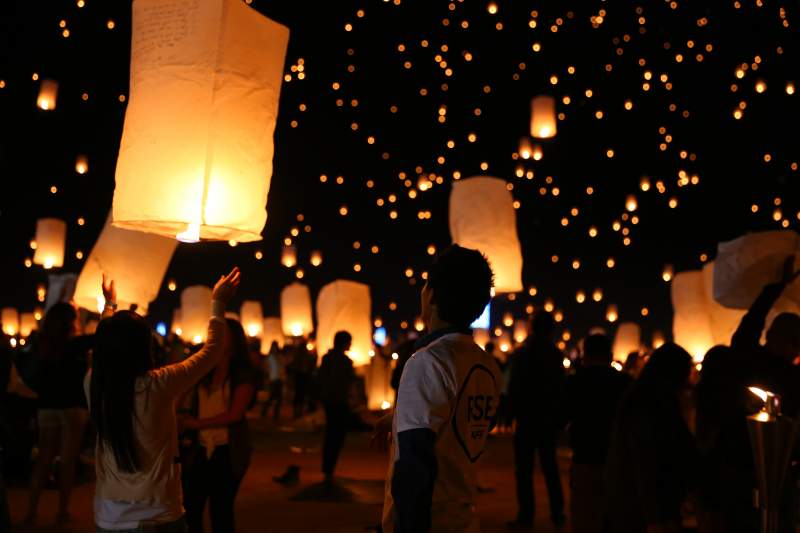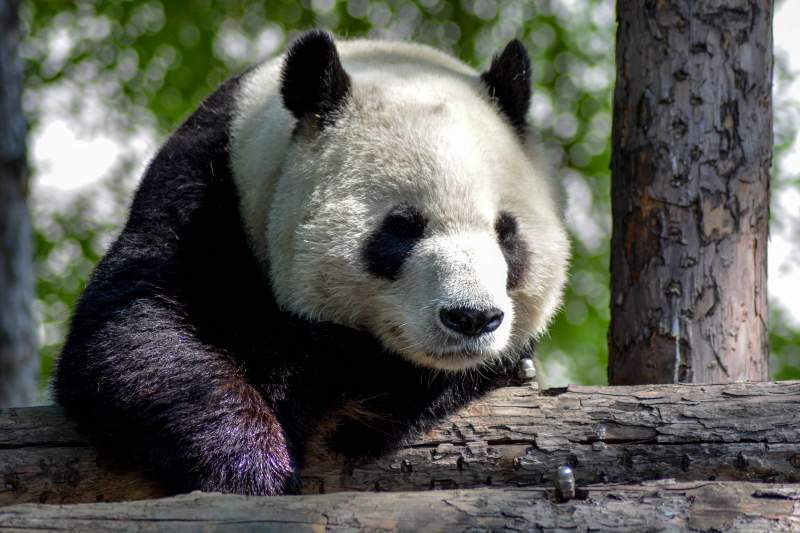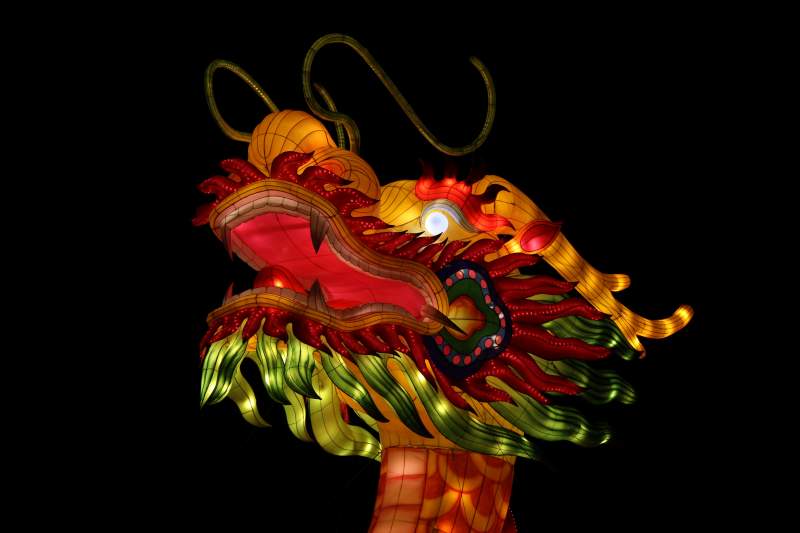Are you going to travel or live in China. You may be interested in learning some common Chinese phrases. Below is a collection of basic Chinese phrases These phrases are shown in simplified Chinese characters (used in Mainland China). The pronunciation is marked with standard Mandarin Chinese Pinyin.
Basic phrases
1. Excuse me 请问 qǐngwén
2. Goodbye 再见 zàijiàn
3. Thank you 谢 谢 Xièxie
4. I’m sorry. 对不起 Duìbuqǐ
Greetings
5. Welcome 欢迎光临 huānyíng guānglín.
6. Good morning. 早上好 Zǎoshang hǎo.
7. Happy New Year 新年快乐 xīnnián kuàilè.
8. Happy Birthday! 生日快乐! Shēngrì kuàilè.
9. Wish you a prosperous new year 恭喜发财 gōngxǐ fācái.
10. Good luck! 祝你好运! Zhù nǐ hǎoyùn.
Can you speak English?
11. Do you speak English? 你会说英语吗?nǐ huì shuō yīngyǔ ma?
12. How do you say … in Mandarin? … 中文怎么说? … zhōngwén zěnme shuō.
13. I don’t understand 我听不懂 wǒ tīngbùdǒng.
14. Please say that again 请你再说一遍 Qǐng nǐ zàishuō yībiàn.
15. Can You Speak Slowly? 请说慢一点。Qǐng shuō màn yīdiǎn.
16. I don’t know 我不知道 wǒ bù zhīdào.
Nice to meet you.
17. Hello, 你好 Nǐ hǎo.
18. I am very glad to meet you. 很高兴认识您。 Hěn gāo xìng rèn shí nín.
19. What is your name? 您叫什么名字? nín jiaò shén me míng zì?
20. My name is Luo Lun Si.我叫罗论丝 wǒ jiaò lúo lún sī.
21. I’m leaving. 我要走了。 Wǒ yào zǒule.
Where are you from?
22. Where are you from? 你从哪里来? Nǐ cóng nǎlǐ lái?
23. I’m from the U.S 我从美国来。 Wǒ cóng měiguó lái
Asking about age
24. How old are you? 你多大了? Nǐ duōdàle?
25. I’m twenty-five years old. 我二十五岁了。 Wǒ èrshíwǔ suìle.
Something is lost.
26. My mobile phone is lost. 我手机丢了。 Wǒ shǒujī diūle.
27. My passport is lost. 我护照丢了。 Wǒ hùzhào diūle.
28. My wallet is lost. 我钱包丢了。 Wǒ qiánbāo diūle.
29. My baggage is lost. 我箱子丢了。 Wǒ xiāngzi diūle
Date
30. Today 今天 Jīntiān
31. Tomorrow 明天 Míngtiān
32. Yesterday 昨天 Zuótiān
33. What’s the date today? 今天几号? Jīntiān jǐ hào?
34 It is September 1st. 今天九月1号。 Jīntiān jiǔ yuè 1 hào.
Time
35. What time is it please? 请问现在几点了? Qǐng wèn xiàn zài jǐ diǎn le?
36. It is 10:20 现在10点20。Xiànzài Shí diǎn èrshí.
37. In the morning 上午 Shàngwǔ.
38. At noon, 中午 Zhōngwǔ.
39. In the afternoon 下午 Xiàwǔ.
40. In the evening 晚上 Wǎnshàng.
Being sick
41. I feel sick. 我有点不舒服。 Wǒ yǒudiǎn bú shūfú.
42. I’ve got a cold. 我感冒了。Wǒ gǎnmàole.
43. I’ve got a cold. 我发烧了。Wǒ fāshāole.
44. It hurts here 这儿疼 zhè’er téng.
45. I need a doctor 我要看医生。 Wǒ yào kàn yīshēng.
46. I need to go to hospital 我要去医院 Wǒ yào qù yīyuàn.
Number
47. One, Two, Three 一、二、三 Yī, èr, sān
48. Four, Five, Six 四、五、六 Sì, wǔ, liù
49. Seven, Eight, Nine, Ten 七、八、九、十 Qī, bā, jiǔ, shí
50. One hunderd 一百 Yībǎi
Asking for directions
51. I’m lost 我迷路了。 Wǒ mílùle.
52. Where is …? …在哪里 …Zài nǎlǐ?
53. Can you tell me how to go to + place, please? 请问怎么去…? Qǐng wèn zěn me qù…?
54. Where do you want to go? 你要去哪里? Nǐ yào qù nǎlǐ?
55. Airport 机场 Jīchǎng
56. Railway Station 火车站 Huǒchē zhàn
57. Taxi 出租车 Chūzū chē
58. Subway 地铁 Dìtiě
59. East 东 Dōng;South 南 Nán; West 西 Xi; North 北 Běi
60. Straight ahead 直走 Zhí zǒu
61. Turn left 左转 Zuǒ zhuǎn
62. Turn right 右转 Yòu zhuǎn
Money
63. I want to exchange money. 我想换钱。Wǒ xiǎng huànqián.
64. U.S.dollars 美元 Měiyuán
65. Chinese Yuan 人民币 Rénmínbì
66. Bank 银行 Yínháng
Restroom
67. Rest-room. 厕所 Cè suǒ / 洗手间 xǐshǒujiān
68. Where are the restrooms? 厕所在哪里? Cèsuǒ zài nǎlǐ?
69. Men’s restroom 男(厕所) Nán (Cè suǒ)
70. Ladies’ room 女 (厕所) Nǚ (Cè suǒ)
Shopping
71. How much money? 多少钱 Duōshao qián?
72. Too expensive 太贵了Taì guì le.
73. Cheaper please. 便宜点。Pián yi diǎn.
74. I want 我要 Wǒ yào
75. I don’t want 我不要 Wǒ Bùyào
76. I’d like to go to the supermarket. 我想去超市。 Wǒ xiǎng qù chāoshì.
Internet
77. Excuse me, is there any wifi here? 请问,这里 有 wifi 吗? Qǐngwèn,zhèlǐ yǒuwifi ma?
78. What’s the password? 密码 是 多少? Mìmǎ shì duōshao?
Phone
79. What’s your telephone number? 你手机多少? Nǐ shǒujī duōshǎo?
80. Make phone call. 打电话。Dǎ diànhuà
81. Add me on WeChat. 加我的微信。 Jiā wǒ de wéi xìn.
Travel
82. I’m having fun. 我玩得很开心。 Wǒ wán de hěn kāixīn.
83. Could you take my picture, please? 请帮我拍下照。 Qǐng bāng wǒ pāi xià zhào.
Restaurant
84. I’m hungry. 我饿死了。 Wǒ è sǐ le。
85. Please wait a second.请稍等。Qǐng shāo děng.
86. Can I look at the menu, please 请给我看看菜单 qǐng gěi wǒ kànkan Càidān
87. Do you have an English menu 你有没有英文菜单… nǐ yŏu méi yǒu yīngwén càidān.
88. Yes, we have one 有 Yǒu
89. No, we don’t 没有 Méi yǒu
90. I’m a vegetarian 我吃素的 wǒ chī sù de.
91. Pork meat 猪肉 Zhūròu
92. Chicken meat 鸡肉 Jīròu
93. Beef 牛肉 Niúròu
94. Vegetables 蔬菜 Shūcài
95. Tofu豆腐 Dòufu
96. Noodles 面条 Miàntiáo
97. It was delicious 好吃极了。 hǎochī jí le.
98. The check, please 请结帐。 qǐng jiézhàng.
Other useful phrases
99. Call the police! 报警! Bàojǐng.
100. Help! 救命! Jiùmìng!
Do you want to know other useful Chinese phrases? Please leave comments below.
Are you learning Chinese online?
And maybe planning a travel adventure to China?
Or do you want to be able to speak to Chinese people in your local community?
Even a little bit of Chinese will go a long way! Besides practical communication, learning some Chinese can make a big difference to your ability to make meaningful connections and experience Chinese culture.
Many of these common Chinese phrases are expressions I wish I’d learned much earlier. They’re everyday phrases that you’ll hear in real life but might not find in any textbook.
If you already have some familiarity with Mandarin Chinese Pinyin and tones, you can go ahead and skip right to the phrases.
Otherwise, you’ll find some very useful info in the next section, so keep reading below! In either case, by the time you’ve finished this post, you’ll have all the expressions you need to chat to a native Chinese person for the first time.
Pro Tip
By the way, if you want to learn Chinese fast and have fun, my top recommendation is Chinese Uncovered which teaches you through StoryLearning®.
With Chinese Uncovered you’ll use my unique StoryLearning® method to learn Chinese through story… not rules.
It’s as fun as it is effective.
If you’re ready to get started, click here for a 7-day FREE trial.
What Do You Need To Know About Chinese Pronunciation?
First, what do you need to know about Chinese pronunciation? For each phrase in this article, you’ll see there are a few parts.
Here’s the first phrase as an example:
- 你好!Nǐhǎo! – Hello!
- (Nee how)
Let’s break that down.
- First, you have the written form: the Chinese characters. 你好!
- Can’t read Chinese yet? No problem! Next to the characters, you’ll see a pronunciation guide.
- This is written according to a standardised system called Pinyin. That’s the Nǐhǎo part.
- Next, you have the English translation, plus any usage tips you might need to know.
- Finally, you’ll see a rough pronunciation guide based on English sounds – here it’s (Nee how). It’ll help if you want the basics super quick – however, it’s very approximate!
Many sounds in Chinese, particularly consonants, have no exact equivalent in English. That’s why Pinyin exists – to give a reliable pronunciation guide for learners.
I highly recommend familiarising yourself with Pinyin and the Chinese sounds it represents. It’ll help you so much in sounding more like a native speaker, and is essential if you want to progress past the basics.
Check out this table to listen to the sound of any word in Pinyin.
What Are Chinese Tones?
You may have noticed some markings on the vowel sounds in the Pinyin example above: Nǐhǎo. These represent the “tone” of each syllable.
Spoken Chinese is a tonal language.
This means that changes in your voice pitch while pronouncing a vowel sound form part of the meaning of a word. So, even if two words sound exactly the same except for the tone, a different tone = a different meaning.
There are 5 (-ish) tones in Mandarin – 4 main tones plus a de-emphasized “neutral” tone.
The tone markings in Pinyin visually represent the pitch contour that your voice makes when pronouncing the vowel. Here are the tones and how they are written:
- 1st tone = flat tone mā (or ma1)
- 2nd tone = rising tone má (or ma2)
- 3rd tone = falling-rising tone mǎ (or ma3)
- 4th tone = falling tone mà (or ma4)
- 5th tone = neutral tone ma (or ma5 or ma0)
Check out this post for more info on how to master Chinese tones.
Let’s Get Talking Chinese
Ok, now that we’ve covered the pronunciation basics – let’s get talking!
Here are the categories of phrases that you will learn below:
- Greetings & small talk
- Getting to know you
- Being polite
- “I don’t understand!”
- Asking for directions
- Transport in China
- Eating out
- Shopping
- Numbers
- Solving problems
- Special occasions
- Saying goodbye
Common Chinese Phrases To Greet People
The backbone of social interactions – we all need greetings to start off a conversation right!
- #1 你好!Nǐhǎo – Hello!
- (Nee haow)
- #2 你好吗?Nǐhǎo ma? – How are you?
- (Nee haow ma)
- #3 很好 Hěn hǎo – Good
- (Hun haow)
- #4 还好 Hái hǎo – Pretty good
- (Hi haow)
- #5 不太好 Bù tài hǎo – Not so good
- (Boo tye haow)
- #6 早上好 Zǎoshang hǎo – Good morning
- (Dzow shung haow)
- #7 晚上好 Wǎnshang hǎo – Good evening
- (Wun shung haow)
- #8 晚安 Wǎn’ān – Good night
- (Wun-un)
Common Chinese Phrases For Getting To Know People
If you’re visiting China, you’ll generally find people are very friendly and not shy about asking questions! Here are some basics to help you connect with people you meet.
Pronunciation note: in this guide, the “or” sound represents the vowel sound in the English word “or,” but without an audible “r” sound at the end. In other words, the way it typically sounds in a British accent, rather than an American one.
If in doubt, check the Pinyin and go have a listen!
- #9 你叫什么名字?Nǐ jiào shénme míngzi? – What’s your name? (Informal)
- (Nee jyaow shun muh ming dzrr)
- #10 我叫__ Wǒ jiào__ – My name is…
- (Wor jyaow..)
- #11 您贵姓?Nín guìxìng? – What is your surname? (Formal)
- (Neen gway shing)
- #12 我姓__ Wǒ xìng__ – My surname is…
- (Wor shing)
- #13 你多大?Nǐ duōdà? – How old are you?
- (Nee dwor da)
- #14 我三十岁 Wǒ sānshí suì – I’m thirty (years old)
- (Wor sun shrr sway)
- #15 你来自哪里?Nǐ láizì nǎli? – Where do you come from?
- (Nee lye dzrr na lee)
- #16 我来自中国 Wǒ láizì zhōngguó – I come from China
- (Wor lye dzrr jong gwor)
- #17 你是哪国人?– Nǐ shì nǎ guó rén? – Which country are you from?
- (Nee shrr na gwor run)
- #18 我是中国人 Wǒ shì zhōngguó rén – I’m Chinese (literally, “I’m a Chinese person”)
- (Wor shrr jong gwor run)
- #19 我是外国人 Wǒ shì wàiguó rén – I’m a foreigner
- (Wor shrr wye gwor run)
- #20 老外 Lǎowài – Foreigner (a common slang term!)
- (Laow wye)
- #21 很高兴认识你 Hěn gāoxìng rènshi nǐ – Nice to meet you
- (Hun gaow shing run shrr nee)
Pro Tip
You usually use this last phrase when saying goodbye to someone after meeting them for the first time, rather than immediately after being introduced.
If you’re visiting China, your home country is quite likely to come up in conversation – find the Chinese name of your country here!
Common Chinese Phrases For Being Polite
As humans, we’re generally out to make a good impression – here’s some help on that front!
Even if you don’t have much vocabulary yet, these words are bound to help your conversations go more smoothly.
- #22 谢谢! Xièxiè! – Thank you!
- (Shyeah shyeah) (Pronunciation tip: the “x” sound in Chinese is really somewhere in between “s” and “sh” in English.)
- #23 非常感谢! Fēicháng gǎnxiè! – Thank you so much!
- (Fay chung gun shyeah)
- #24 不用谢 Bù yòng xiè – You’re welcome (literally, “no need for thanks”)
- (Boo yong shyeah)
- #25 不客气 Bù kèqì – You’re welcome (literally, “no need to be so polite”)
- (Boo kuh chee)
- #26 不好意思 Bù hǎoyìsi – Excuse me, sorry (To get attention, for getting past, for mild apologies)
- (Boo haow yee srr)
- #27 对不起 Duìbuqǐ – Sorry (A more emphatic apology)
- (Dway boo chee)
- #28 请问…? Qǐngwèn…? – Could I ask…? (A polite way to preface a question)
- (Cheeng wun)
- #29 麻烦你了Mǎfan nǐ le – Sorry to bother you
- (Ma fun nee luh)
- #30 没问题 Méi wèntí – No problem
- (May wun tee)
- #31 好的!Hǎo de! – OK!
- (Haow duh)
Common Chinese Phrases To Say: “I Don’t Understand!”
Ever been in a situation where you were listening to a native speaker and just kept nodding and smiling, when really had no idea what they were saying?
Here’s how to avoid that. The simplest way to get people to help you understand is to ask them!
- #32(你)听得懂吗?(Nǐ) tīngdedǒng ma? – Do you understand?
- (Nee teeng duh dong ma)
- #33(我)听得懂 (Wǒ) tīngdedǒng – I understand
- (Wor teeng duh dong)
- #34(我)听不懂!(Wǒ) tīngbudǒng – I don’t understand!
- (Wor teeng boo dong)
- #35(你)会说中文吗?(Nǐ) huì shuō zhōngwén ma? – Do you speak Chinese?
- (Nee hway shwor jong wun ma)
- #36(你)会说英文吗?(Nǐ) huì shuō yīngwén ma – Do you speak English?
- (Nee hway shwor yeeng wun ma)
- #37(我)不会说中文 (Wǒ) bù huì shuō zhōngwén – I don’t speak Chinese
- (Wor boo hway shwor jong wun)
- #38(我)会说 (Wǒ) huì shuō – Yes, I can speak it
- (Wor hway shwor)
- #39 可以说得慢一点吗?Kěyǐ shuō de màn yīdiǎn ma? – Could you speak more slowly?
- (Kuh yee shwor duh mun yee dyen ma)
- #40 __ 什么意思?__ shénme yìsi? – What does __ mean?
- (__shun muh yee srr)
- #41 __怎么说?__zěnme shuō? – How do you say __?
- (__dzun muh shwor)
- #42 (我)不知道 (Wǒ) bù zhīdao – I don’t know
- (Wor boo jrr daow)
Common Chinese Phrases For Asking For Directions
Sometimes asking the locals is still the best way to find something!
We’re so used to relying on map apps these days. But it pays to have some useful phrases up your sleeve. This is especially the case since Google services don’t work in mainland China.
Check out local alternative Baidu Maps for your navigation needs. Or better yet, keep reading for tips on navigating the old-fashioned way.
- #43 不好意思,可以问个路玛? Bù hǎoyìsi, kěyǐ wèn ge lù ma? – Excuse me, could I ask for some directions?
- (Boo haow yee srr, kuh yee wun guh loo ma)
- #44 到__怎么走?Dào ___ zěnme zǒu? – How do you get to the __?
- (Daow __ dzun muh dzoh)
- #45 __在哪儿?/ __在哪里?__zài nǎr?/__ zài nǎli – Where is the __?
- (__dzye narr/__dzye na lee) (Pro tip: the first variant, with an “r’’ sound, is more common in Beijing and northern China, while you’ll hear more of the second variant further south.)
- #46 __在那儿/__在那里 __zài nàr/__zài nàlǐ – The __ is over there.
- ( ____ zay naar / _____ zay naa-lee)
Pro tip: Tones are important here! Check out the above two examples:
- 哪儿nǎr means “Where?”
- while 那儿 nàr means “there!”
- #47 在这儿/在这里 Zài zhèr/Zài zhèlǐ – It’s here.
- (Dzye jurr/Dzye juh lee)
- #48 直走 Zhí zǒu – Go straight ahead
- (jrr dzoh)
- #49 右转 Yòu zhuǎn – Turn right
- (Yoh jwun)
- #50 左转 Zuǒ zhuǎn – Turn left
- (Dzwor jwun)
- #51 过马路 Guò mǎlù – Cross the road
- (Gwor ma loo)
- #52 我要去__ Wǒ yào qù__ – I want to go to __ (Also good for directing a taxi or buying a ticket)
- (Wor yaow choo)
Common Chinese Phrases To Talk About Transport
Most larger Chinese cities are very well connected with public transport of all kinds – though rush hour can get pretty crowded! There’s an extensive intercity train network, too.
- #53 一张到北京的票 Yī zhāng dào Běijīng de piào – One ticket to Beijing
- (Yee jung daow bay jeeng duh pyaow)
- #54 两张票 Liǎng zhāng piào – Two tickets
- (Lyung jung pyaow)
- #55 来回 Lái huí – Return/round-trip
- (Lye hway)
- #56 单程 Dān chéng – One-way
- (Dun chung)
- #57 机场 Jīchǎng – Airport
- (Jee chung)
- #58 火车站 Huǒchēzhàn – Train station
- (Hwor chuh jun)
- #59 地铁站 Dìtiězhàn – Metro/subway/underground station
- (Dee tyeah jun)
- #60 公交车站 Gōngjiāochēzhàn – Bus stop/station
- (Gong jyaow chuh jun)
- #61 出租车 Chūzūchē – Taxi
- (Choo dzoo chuh)
Common Chinese Phrases For Eating Out
China has an incredibly rich and varied food culture.
Every region has its own cuisine, from the lighter, sweeter flavours of the south to the heavier, savoury sauces of the north.
Food-related vocabulary could be a whole post on its own, so let’s stick to some practical basics!
- #62 几位?Jǐwèi? – How many people?
- (Jee way)
- #63 一位 Yīwèi – One person (i.e. “a table for one”)
- (Yee way)
- #64 两位 Liǎngwèi – Two people
- (Lyung way)
- #65 我想看一下菜单 Wǒ xiǎng kàn yīxià càidān – I’d like to look at the menu
- (Wor shyung kun yee shyah tsay dun)
- #66 点菜Diǎn cài – (I’m/we’re) ready to order
- (Dyen tsye)
- #67 我要… Wǒ yào… – I’ll have…
- (Wor yaow)
- #68 服务员!Fúwùyuán! – Waiter!
- (Foo woo yoo-an)
- #69 买单!Mǎidān! – The bill, please!
- (Mye dun)
Pro Tip
In informal eateries in mainland China, short, efficient phrases like those above are the norm and are not considered impolite. In many places, diners simply call out fúwùyuán! to get the server’s attention.
Common Chinese Phrases For Shopping
Shopping at Chinese markets can be a very lively experience, and haggling for a bargain is par for the course in markets and most small shops (not chain stores).
Ready to brush up your bargaining skills?
- #70 这个 Zhège – This one
- (Jay guh)
- #71 那个 Nàge – That one
- (Nay guh)
- #72 我要这个 Wǒyào zhège – I’ll take this one
- (Wor yaow jay guh)
- #73 我(不)喜欢那个 Wǒ (bù) xǐhuan nàge – I (don’t) like that one
- (Wor boo shee hwun nay guh)
- #74 多少钱?Duōshao qián? – How much is it?
- (Dwor shaow chyen)
- #75 太贵了!Tài guì le! – Too expensive!
- (Tye gway luh)
- #76 便宜一点儿!Piányi yīdiǎnr! – A bit cheaper! (To ask for a better price)
- (Pyen yee yee dyerr)
- #77 可以刷卡吗?Kěyǐ shuākǎ ma? – Can I use a card?
- (Kuh-yee shak-a ma?)
- #78 不要了! Bù yào le! – I don’t want it! (To stop someone hassling you to buy something)
- (Bu-YA-o-luh)
- #79 我看一下 Wǒ kàn yīxià – I’m just looking
- (Wor kun yee shyah)
Common Chinese Phrases: Numbers
Chinese numbers are very logical. See if you can spot the patterns from the following list:
- #80 零/〇 Líng – Zero
- (Leeng)
- #81 一 Yī – 1
- (Yee)
- #82 二 Èr – 2
- (Arr)
- #83 三 Sān – 3
- (Sun)
- #84 四 Sì – 4
- (Srr)
- #85 五 Wǔ – 5
- (Woo)
- #86 六 Liù – 6
- (Lyoh)
- #87 七 Qī – 7
- (Chee)
- #88 八 Bā – 8
- (Ba)
- #89 九 Jiǔ – 9
- (Jyoh)
- #90 十 Shí – 10
- (Shrr)
- #91 十一 Shíyī – 11
- (Shrr yee)
- #92 十二 Shí’èr – 12
- (Shrr arr)
- #93 二十 Èrshí – 20
- (Arr shrr)
- #94 二十一 Èrshíyī – 21
- (Arr shrr yee)
- #95 三十 Sānshí – 30
- (Sun shrr)
- #96 一百 Yībǎi – 100
- (Yee bye)
- #97 二百/两百 Èrbǎi/Liǎngbǎi – 200
- (Arr bye/Lyung bye)
- #98 五百 Wǔbǎi – 500
- (Woo bye)
- #99 六百零五 Liùbǎilíngwǔ – 605
- (Lyoh bye leeng woo)
- #100 七百五(十)Qībǎiwǔ(shí) – 750 (The “shí” is usually dropped)
- (Chee bye woo shrr)
- #101 八百一十五 Bābǎiyīshíwǔ – 815
- (Ba bye yee shrr wu)
- #102 九百八十七 Jiǔbǎibāshíqī – 987
- (Ju-bai ba-shi-ti)
- #103 一千 Yīqiān – 1000
- (Yee chyen)
More On Chinese Numbers
For more detail on the rules and a complete list of Chinese numbers from 0–1000, check out this article.
Bonus fact: In Chinese culture, the number 8, 八 (bā), is considered lucky, as it sounds a bit like the character 发 (fā) meaning “to prosper” or “become wealthy”.
People are often willing to pay big bucks to get phone numbers, apartment numbers or car license plates with a lot of number 8s in them!
The number 4, 四 (sì), on the other hand, is considered unlucky, as it sounds similar to the word for “death,” 死 (sǐ) – another excellent example of why tones are important!
Common Chinese Phrases For Solving Problems
Speaking of bad luck, every traveller knows that things go wrong from time to time.
It pays to be prepared – supplement your best-laid plans with these contingency phrases.
- #104 可以帮个忙吗?Kěyǐ bāng ge máng ma? – Could you help me?
- (Kuh yee bung guh mung ma)
- #105 我迷路了Wǒ mílù le – I’m lost
- (Wor mee loo luh)
- #106 我的钱包丢了 Wǒ de qiánbāo diū le – My wallet is lost/missing
- (Wor duh chyen baow dyoh luh)
- #107 我要去医院 Wǒ yào qù yīyuàn – I need to go to the hospital
- (Wor yaow choo yee yoo-an)
- #108 我生病了 Wǒ shēngbìng le – I’m sick
- (Wor shung beeng luh)
- #109 我受伤了 Wǒ shòushāng le – I’m hurt/injured
- (Wor shoh shung luh)
- #110 这里疼 Zhèlǐ téng – It hurts here
- (Juh lee tung)
Pro Tip
Most doctors in China operate out of hospitals rather than private clinics. So you can head to a hospital for a regular doctor’s visit as well as in emergencies.
Common Chinese Phrases For Special Occasions
China has a rich traditional culture featuring many of its own festivals and celebrations, the most famous being Spring Festival or Chinese New Year.
Many Chinese people, at least in urban areas, also celebrate or at least give a passing nod to festivals from elsewhere, such as New Year (as in December 31st), Christmas and Valentine’s Day.
- #111 恭喜恭喜!Gōngxǐ gōngxǐ! – Congratulations!
- (Gong shee gong shee)
- #112 生日快乐!Shēngri kuàilè! – Happy Birthday!
- (Shung ruh kwye luh)
- #113 干杯!Gānbēi! – Cheers! (Literally, “dry cup!”)
- (Gun bay)
- #114 新年快乐!Xīnnián kuàilè! – Happy New Year! (For both Chinese New Year and the other one)
- (Shin nyen kwye luh)
- #115 恭喜发财!Gōngxǐ fācái! – May you be prosperous! (A traditional greeting at Chinese New Year)
- (Gong shee fa tsye)
- #116 祝你好运!Zhùnǐ hǎoyùn! – Good luck!
- (Joo nee haow yoo-un)
Common Chinese Phrases For Saying Goodbye
No one likes goodbyes – but there comes a time when we all must say them. Luckily, the word for “goodbye” in Chinese literally means “see you again!”
- #117 再见! Zàijiàn! – Goodbye!
- (Dzye jyen)
- #118 明天见! Míngtiān jiàn! – See you tomorrow!
- (Meeng tyen jyen)
- #119 下次见! Xiàcì jiàn! – See you next time!
- (Shyah tsrr jyen)
- #120 拜拜!Bǎibǎi! – Bye!
- (Bye bye)
- #121 一路平安!Yīlù píng’ān! – Safe travels!
- (Yee loo peeng un)
Sound Like A Native, Not A Chinese Textbook
There you have it – your all-purpose guide to phrases that will help you through your first conversations in Mandarin.
From finding a bathroom to making a friend, these words and phrases will help you navigate life in Chinese, and not sound like a textbook while you do it.
As the oft-quoted Lao Zi once said, “the journey of a thousand miles begins with a single step.” These phrases will give you a solid stepping stone to start your own Chinese journey. 一路平安!
Whether you are an aspiring beginner at Chinese, a seasoned traveler planning to visit China, or maybe you are looking for ways to connect with your Chinese-speaking friends, knowing the basic Chinese words and phrases can be incredibly useful. Of course, you also want to learn some survival Chinese if you work and live in China. Though you will meet some locals who can speak English, starting a conversation with them in their language will make a world of difference to your Chinese experience.
Believe it or not, Mandarin Chinese starts out pretty easily. A few basic vocabulary words and sentence patterns will get you by in many situations. This is different from other languages such as French or German which require you to memorize chunks of grammatical technicalities – tenses, conjugations, cases, genders… before you can say even the simplest sentences.
Whatever your reasons for learning Chinese are, we’ve got your back!
In this guide, we’re going to teach you some basic, real Chinese to help you survive in China or other Chinese-speaking countries. We chose 99 of the most essential, basic Chinese words and phrases you’ll hear and use in daily situations and put them to a vocabulary list. We’ll take you through them one by one, telling you what they mean, how they are pronounced, when you can use them, and everything else you want to know about them. We’ll also give you 10 simple, cool Chinese phrases you can use instantly to make you sound like a native speaker already.
No doubt, knowing these basic Chinese words and phrases will help you be on the firm ground even if you’re just at the very beginning of your Chinese learning journey, but before we start in with the list, there is one thing that you should know and be aware of:
The Chinese “alphabet” is not the same as the English one (it’s phonetic though). If you’re completely new to Chinese, try familiarizing yourself with Pinyin first. Pinyin is the Mandarin romanization for pronunciation. The markings above the Pinyin indicate the tone. Pinyin will help you learn how to pronounce Chinese words properly and will make reading a lot easier.
All right! Let’s get started with our list! Trust me, these words and phrases will come in handy and give you all the right tools to interact with the locals.
Editor’s note: before we dive in, if you’re looking for an online Chinese course for beginners, here’s the course we actually recommend: YoyoChinese – a course taught in plain English.
Basic Greetings in Chinese

You can’t expect to start a Chinese conversation without knowing some words and phrases for greetings. Let’s start with the most basic ones.
1. Hello/Good day 你好
Pronunciation: Nǐhǎo
You may know this phrase already. “ni hao” literally means “you good”, and is used in the sense of “wishing you are good”. It’s the most basic way to greet people in Chinese (more often to strangers and nodding acquaintances than to people one is familiar with). It’s safe to use the phrase at any time of the day.
2. Hello (on the phone) 喂
Pronunciation: Wèi
Use this particular greeting instead of “ni hao” when you answer a phone call (but never use it in other situations).
3. How are you? 你好吗?
Pronunciation: Nǐ hǎo ma?
“ma” is kind of like a question marker in Chinese. If “ni hao” means “you good”, then “ni hao ma?” simply means “are you good?”. To keep the conversation going, you can use this basic Chinese question after greeting.
4. Very good 很好
Pronunciation: Hěn hǎo
You can respond with this basic phrase if someone says “ni hao ma?” to you.
5. Not so good 不太好
Pronunciation: Bú tài hǎo
Having a rough day? Then “bu tai hao” it is!
6. Morning! 早!
Pronunciation: Zǎo!
Forget about “zaoshang hao”. A simple “zao” is the most natural way people greet each other in the morning in China.
7. Good night 晚安
Pronunciation: Wǎn’ān
Chinese people don’t say “good afternoon” or “good evening” as often as one would in English, so let’s jump straight to “good night” – “wan’an”. Use it at the end of the day when you leave someone for the last time or when you go to bed.
8. Goodbye 再见
Pronunciation: Zàijiàn
No polite conversation can end without a good old goodbye or “zaijian”. Another parting phrase you’ll frequently hear in Chinese would be 拜拜 (báibái), a loanword from English (bye-bye) popular among young people.
Here’s a recap of the basic Chinese words and phrases you should know to greet people and say goodbye in Chinese.
| English | Chinese | Pinyin |
| Hello/Good day | 你好 | Nǐhǎo |
| Hello (on the phone) | 喂 | Wèi |
| How are you? | 你好吗? | Nǐ hǎo ma? |
| Very good | 很好 | Hěn hǎo |
| Not so good | 不太好 | Bú tài hǎo |
| Morning! | 早! | Zǎo! |
| Good night | 晚安 | Wǎn’ān |
| Goodbye | 再见 | Zàijiàn |
Basic Chinese Words & Phrases to Express Politeness

Chinese culture is built around politeness and courtesy. The basic words of politeness can go a long way. These Chinese phrases will surely come in handy during the conversation if you don’t want to offend anyone.
9. Thank you 谢谢
Pronunciation: Xièxie
If there’s a second word to know besides “ni hao”, this would be it.
10. You’re welcome 不客气
Pronunciation: Bú kèqi
Respond with this phrase when someone says “xiexie” to you. Alternatively, you can reply with 不用谢 (bú yòng xiè) – literally “no need to thank”.
11. Please (do sth) 请…
Pronunciation: Qǐng…
You can add this in front of a request if you want to add an extra layer of politeness.
12. May I ask… 请问…
Pronunciation: Qǐng wèn…
If you need to grab someone’s attention to ask a question, such as asking for the restroom, directions, or a similar favor, start with “qing wen”, then follow it up with what you want to ask.
13. Excuse me 不好意思
Pronunciation: Bù hǎo yìsi
“bu hao yisi” literally means “embarrassed”, that is, one is embarrassed with a situation or for having caused the situation. It’s a casual way of saying “sorry” in Chinese when the situation doesn’t really warrant a “sorry”. You can use the phrase, for instance, if you bump into someone on a crowded subway or when you need to interrupt someone.
14. I’m sorry 对不起
Pronunciation: Duìbuqǐ
When apologizing for more serious inconveniences, you can use the phrase ”dui bu qi”. Hearing a foreigner attempt to apologize in your spoken tongue will add that extra layer of respect.
15. It doesn’t matter 没关系
Pronunciation: Méi guānxi
This is normally how you respond to an apology in Chinese.
16. No problem 没问题
Pronunciation: Méi wèntí
Everything works out fine? Then “mei wenti!”
Here’s a quick summary of the basic polite words and phrases in Chinese.
| English | Chinese | Pinyin |
| Thank you | 谢谢 | Xièxie |
| You’re welcome | 不客气 | Bú kèqi |
| Please (do sth) | 请… | Qǐng… |
| May I ask… | 请问… | Qǐng wèn… |
| Excuse me | 不好意思 | Bù hǎo yìsi |
| I’m sorry | 对不起 | Duìbuqǐ |
| It doesn’t matter | 没关系 | Méi guānxi |
| No problem | 没问题 | Méi wèntí |
Survival Chinese Words & Phrases

If you want to survive your trip to China, you’ve got to learn a few more basic words beyond the initial greeting to get you by. So, here is a list of the survival Chinese words you need to memorize right away.
17. I 我
Pronunciation: Wǒ
It’s important to know some basic Chinese pronouns. If it’s your first time hearing these words, then you should familiarize yourself with them as soon as you can.
Chinese doesn’t differentiate between the subject (doer of the action) and object (undergoer of the action), so you can use “wo” for both “I” and “me”, for instance, “wo shi…” (I am…), “shi wo” (it’s me).
18. You 你
Pronunciation: Nǐ
“ni” refers to the singular “you” in Chinese. If you are talking to more than one person, you can use “nimen”, the plural “you” instead.
19. He/She/It 他/她/它
Pronunciation: Tā
Fun fact: while “he”, “she”, and “it” are represented by different characters, they are pronounced exactly the same in Chinese. You’ll need to rely on the context to figure out whether someone is referring to the male “ta” or female “ta” during a conversation.
(An interesting phenomenon is that Chinese people, when speaking English, often use “he” instead of “she” or the other way around by mistake, because they’ve never had to pay attention to the phonetic difference in their own language.)
20. This 这个
Pronunciation: Zhè ge
21. That 那个
Pronunciation: Nà ge
To point things out in Chinese, you can use the above two basic words (known as demonstrative pronouns). Note that people in northern China often pronounce “nà ge” as “nèi gè”. (read more on “nèi gè”)
22. Yes 是的
Pronunciation: Shì de
23. No 不是
Pronunciation: Bú shì
Technically, Chinese doesn’t have specific words that correspond directly to “yes” and “no” when used in isolation. To answer a question properly, even the simplest one, you need some basic knowledge of Chinese grammar. (read Chinese Grammar for Beginners here)
The good news is that you can get by just using “shi de” for “yes” and “bu shi” for “no”. They may not be strictly correct, and you may even find people giggling, but you’ll be understood in most situations.
24. Good/Okay 好的
Pronunciation: Hǎo de
Respond with “hao de” when you accept someone’s request, suggestion, invitation, or when they ask for a favor and you don’t mind helping. That way, you’ll sound friendly and adorable.
Just make sure you don’t use “hao de” to replace “shi de”. (if someone asks you if you are Mr. Johnson, answering with “okay” will sound silly)
25. Not Good/Not Okay 不好
Pronunciation: Bù hǎo
If you are not in the mood, simply answer with “bu hao”. As you can probably guess, “bu” is a negation word in Chinese that makes a statement negative. (read more here)
26. Maybe 有可能
Pronunciation: Yǒu kěnéng
You may also give an ambiguous answer by saying “you keneng” – literally “there’s a possibility”.
27. Now 现在
Pronunciation: Xiànzài
It’s necessary to know some basic time words in Chinese. Since there is no so-called “tense” in Chinese, people rely heavily on time words such as “now”, “yesterday”, and “tomorrow” to differentiate whether something happens in the present, past, or future.
28. Today 今天
Pronunciation: Jīntiān
29. Yesterday 昨天
Pronunciation: Zuótiān
30. Tomorrow 明天
Pronunciation: Míngtiān
31. Restroom/Toilet 厕所
Pronunciation: Cèsuǒ
There are several ways to say “restroom” in Chinese, among which “cesuo” is the most common one. If you have a problem memorizing the entire string of words to say “where is the restroom?” in Chinese, you can simply say “cesuo?” Most people will give you the same response anyway.
32. Help! 救命!
Pronunciation: Jiùmìng!
Hopefully, you won’t have to use this phrase, but it’s necessary to know in case of unknown emergencies.
Here’s a quick recap of the words and phrases you’ll need in your next Chinese survival situation.
| English | Chinese | Pinyin |
| I | 我 | Wǒ |
| You | 你 | Nǐ |
| He/She/It | 他/她/它 | Tā |
| This | 这个 | Zhè ge |
| That | 那个 | Nà ge |
| Yes | 是的 | Shì de |
| No | 不是 | Bú shì |
| Good/Okay | 好的 | Hǎo de |
| Not good/Not okay | 不好 | Bù hǎo |
| Maybe | 有可能 | Yǒu kěnéng |
| Correct/Right | 对 | Duì |
| Now | 现在 | Xiànzài |
| Today | 今天 | Jīntiān |
| Yesterday | 昨天 | Zuótiān |
| Tomorrow | 明天 | Míngtiān |
| Restroom/Toilet | 厕所 | Cèsuǒ |
| Help! | 救命! | Jiùmìng! |
Basic Chinese Numbers

The Chinese numbers, which belong to the Indo-Arabic-based decimal system, are not difficult to learn. Their construction follows rules that will allow you to memorize them easily.
Here are the basic Chinese numbers.
33. One 一
Pronunciation: Yī
34. Two 二
Pronunciation: Èr
There are actually two words that correspond to the number “2” in Chinese: “èr” and “liǎng”, and they are used for different circumstances. (find out when to use which here)
35. Three 三
Pronunciation: Sān
36. Four 四
Pronunciation: Sì
Numerology plays a vital role in Chinese lives. Locals lay great emphasis on the use of numbers which, according to their culture, may be considered lucky or unlucky.
The number “4” is a dreaded number in Chinese superstition and a very unlucky number. This is because it is almost homophonous with the Chinese word “sǐ” which means “death”. Chinese avoid numbers “4” and “14” when they choose phone numbers, room numbers, or select dates of ceremonies.
37. Five 五
Pronunciation: Wǔ
38. Six 六
Pronunciation: Liù
39. Seven 七
Pronunciation: Qī
40. Eight 八
Pronunciation: Bā
“8” is the most favored number in China. It’s associated with wealth, luck, success, and status.
41. Nine 九
Pronunciation: Jiǔ
42. Ten 十
Pronunciation: Shí
43. One hundred 一百
Pronunciation: Yì bǎi
44. One thousand 一千
Pronunciation: Yì qiān
Once you’ve mastered the basic numbers we listed above, you’ll instantly know how to say all the other numbers. All you need is some 1st grade math. (here is how you do it)
Below is a quick rundown of the basic Chinese numbers we’ve just covered.
| English | Chinese | Pinyin |
| One | 一 | Yī |
| Two | 二 | Èr |
| Three | 三 | Sān |
| Four | 四 | Sì |
| Five | 五 | Wǔ |
| Six | 六 | Liù |
| Seven | 七 | Qī |
| Eight | 八 | Bā |
| Nine | 九 | Jiǔ |
| Ten | 十 | Shí |
| One hundred | 一百 | Yì bǎi |
| One thousand | 一千 | Yì qiān |
Simple Chinese Phrases for Small Talk

Now, here are a few more simple Chinese words and phrases you’ll need to lead a conversation and keep it going.
45. Have you eaten? 吃了吗?
Pronunciation: Chī le ma?
Don’t be bewildered when locals ask you “have you eaten?” or “chi le ma?”. This is not a dinner invitation. Instead, it’s a traditional way of people greeting each other in China, which is quite common among the older generation (they love it!).
Quick note: To use this greeting, you need to have a certain degree of familiarity with the Chinese speaker, as it’s most often used between friends and neighbors. Saying this to strangers will leave them befuddled.
46. I’ve eaten 吃了
Pronunciation: Chī le
The phrase “chi le ma?” is usually just used to start a conversation (similar to how native English speakers might say “How’s it going?” or “What’s up?”), the speaker may not really care whether or not you’ve had your lunch or dinner.
But in case you encounter this question, you should know how to respond. There are two ways you can do it:
If you’ve eaten – “chi le”.
47. I haven’t eaten yet 还没吃
Pronunciation: Hái méi chī
And if you haven’t – “hai mei chi”.
48. And you? 你呢?
Pronunciation: Nǐ ne?
“ni ne?” is a simple and quick way to bounce back the question that you’ve just been asked in Chinese. This is equivalent to saying “and you?” or “what about you?” in English.
49. What’s your name? 你叫什么名字?
Pronunciation: Nǐ jiào shénme míngzì?
You can use this basic phrase to ask the name of the person you’re talking to in Chinese.
Just take note that in Chinese culture, only people having a close personal relationship address each other by their full name or first name. It’s okay to use the phrase to a kid, or when you are introduced to a friend of a friend, meeting peers at school, workplace, or a party, but don’t use it on formal occasions, to your client, people who are older than you, or senior in rank than you in an organization… ask their family name instead. (here is how to do it)
50. My name is… 我叫…
Pronunciation: Wǒ jiào…
An appropriate self-introduction starting with your name is the first step for people to know you. There are several ways you can do it. “wo jiao…” is the easiest one. This phrase means “I’m called…” literally. (read here to learn other ways of introducing your name)
51. Where are you from? 你是哪里人?
Pronunciation: Nǐ shì nǎlǐ rén?
Chinese people are always keen to know where the foreigner they are interacting with is from, so you’ll hear this all the time. Literally, the phrase means “You are where person?”.
A common variation of this question is 你是哪国人? (Nǐ shì nǎ guó rén?) – literally, “You are which country person?”.
52. I’m from… 我是…人
Pronunciation: Wǒ shì … rén
This is how you can start answering this type of question. Try to learn your country‘s name in Chinese and slip it in the middle of the sentence.
For example,
- 我是意大利人。
Wǒ shì Yìdàlì rén.
I am from Italy.
53. Nice to meet/see you 很高兴见到你
Pronunciation: Hěn gāoxìng jiàn dào nǐ
What an important phrase to learn! You can use it the first time you meet someone as well as when you meet again.
Here’s a quick summary of the simple vocabulary you need for small talk in Chinese.
| English | Chinese | Pinyin |
| Have you eaten? | 吃了吗? | Chī le ma? |
| I’ve eaten | 吃了 | Chī le |
| I haven’t eaten yet | 还没吃 | Hái méi chī |
| And you? | 你呢? | Nǐ ne? |
| What’s your name? | 你叫什么名字? | Nǐ jiào shénme míngzì? |
| My name is… | 我叫… | Wǒ jiào… |
| Where are you from? | 你是哪里人? | Nǐ shì nǎlǐ rén? |
| I’m from… | 我是…人 | Wǒ shì … rén |
| Nice to meet/see you | 很高兴见到你 | Hěn gāoxìng jiàn dào nǐ |
Basic Chinese Phrases & Sentences to Get around

Imagine that you’re in China. What should you say when you suddenly need to ask for help? Or if you want to buy something at a local market? In this case, It’s crucial to know basic Chinese phrases and sentences so that you’ll be able to get around or cope with problems once they crop up.
We’ll start with the most basic Chinese verbs: to want (要 yào), to go (去 qù), to have (有 yǒu), to like (喜欢 xǐhuan). Basic Chinese for travelers is based on these simple verbs. Once you master the following phrases, you’ll have a good foundation for creating Chinese sentences in different circumstances.
54. Do you want (sth)… 要不要…?
Pronunciation: Yào bu yào…?
Use the phrase to ask someone whether he/she wants something.
55. I want… 我要…
Pronunciation: Wǒ yào…
This is how you can start saying what you want in Chinese. Just add the right noun at the end. You may also use this phrase to order food and drinks in a restaurant or a street stand.
For example,
- 我要这个。
Wǒ yào zhè ge.
I want (would like) this.
56. I don’t want (sth) 我不要…
Pronunciation: Wǒ bú yào…
This is how you say you don’t want something in Chinese.
57. I want to go to… 我要去…
Pronunciation: Wǒ yào qù…
Going somewhere? Then this phrase will come in handy when you talk to taxi drivers. Simply mention your destination at the end of the sentence.
58. Do you have (sth)… 有没有…?
Pronunciation: Yǒu méiyǒu…?
You can use this phrase to ask someone whether he/she has something. This is useful if you’re in a local market or restaurant looking for something particular.
59. I have (sth) 我有…
Pronunciation: Wǒ yǒu…
This is how you can say you have something in Chinese.
60. I don’t have (sth) 我没有…
Pronunciation: Wǒ méiyǒu…
This is how you can say you don’t have something in Chinese.
61. I like… 我喜欢…
Pronunciation: Wǒ xǐhuan…
62. I don’t like… 我不喜欢…
Pronunciation: Wǒ bù xǐhuan…
Use the basic expressions “wo xihuan…” and “wo bu xihuan” to talk about your likes and dislikes.
63. What’s this? 这是什么?
Pronunciation: Zhè shì shénme?
You may see a lot of new things that you don’t even know what they are in China – food, signs, toys, instruments, whatever! This is the phrase to use to point and ask.
64. Where is…? …在哪儿?
Pronunciation: … zài nǎr?
You can navigate your way around China town or any place in China with this basic question. Simply say the name of the place you’re looking for at the beginning.
For instance,
- 厕所在哪儿?
Cèsuǒ zài nǎr?
Where is the restroom? (Literally, “Restroom is where?”)
65. How do I get to…? …怎么去?
Pronunciation: … zěnme qù?
Another useful phrase to remember for asking for directions in Chinese.
66. At what time? 什么时候?
Pronunciation: Shénme shíhou?
You can use this phrase to ask “at what time?” or “when?”. If you want to ask “what time is it?”, say 现在几点? (xiàn zài jǐ diǎn?)
Once you’ve got the basic numbers under your belt, it’s pretty simple to learn how to tell the time in Chinese.
67. Very pretty 很漂亮
Pronunciation: Hěn piàoliang
Chinese people love it when you compliment their country, so feel free to stroke their egos a bit with this phrase. For instance, you can say to your tour guide “Shanghai hen piaoliang” while admiring the light show on the Bund. Of you may tell a lady you are trying to impress, “Ni hen piaoliang”. Disclaimer: We make no promises about the outcome.
Below is a summary of these useful phrases and sentences to get around in China.
| English | Chinese | Pinyin |
| Do you want (sth)? | 要不要…? | Yào bu yào…? |
| I want (sth) | 我要… | Wǒ yào… |
| I don’t want (sth) | 我不要… | Wǒ bú yào… |
| I want to go to… | 我要去… | Wǒ yào qù… |
| Do you have (sth)? | 有没有…? | Yǒu méiyǒu…? |
| I have (sth) | 我有… | Wǒ yǒu… |
| I don’t have (sth) | 我没有… | Wǒ méiyǒu… |
| I like… | 我喜欢… | Wǒ xǐhuan… |
| I don’t like… | 我不喜欢… | Wǒ bù xǐhuan… |
| What’s this? | 这是什么? | Zhè shì shénme? |
| Where is…? | …在哪儿? | … zài nǎr? |
| How do I get to…? | …怎么去? | … zěnme qù? |
| At what time? | 什么时候? | Shénme shíhou? |
| Very Pretty | 很漂亮 | Hěn piàoliang |
Basic Chinese Words & Phrases for Shopping

Stuff the following Chinese shopping vocabulary into your pocket to gain a new cultural experience when traveling in China. Whether you are shopping for souvenirs, clothes, or food, you’ll find these basic Chinese phrases useful.
68. How much is it? 多少钱?
Pronunciation: Duōshǎo qián?
Now that you can understand the basic numbers in Chinese, you can use this phrase to ask the price of something at a shop or a street market in China.
69. Too expensive! 太贵了!
Pronunciation: Tài guì le!
Souvenirs, clothes, shoes, accessories, electronics, fruit…almost anything is up for haggling at a Chinese market. You are encouraged to bargain because you are most likely given the tourist price first. Impress the vendors with “Tai gui le!”
70. Make it cheaper! 便宜一点!
Pronunciation: Piányi yì diǎn!
Combine this phrase with the one above and you’re well on your way to becoming a fluent haggler in Chinese!
Here’s a recap of basic Chinese shopping vocabulary.
| English | Chinese | Pinyin |
| How much is it? | 多少钱? | Duōshǎo qián? |
| Too expensive! | 太贵了! | Tài guì le! |
| Make it cheaper! | 便宜一点! | Piányi yì diǎn! |
Basic Chinese Words & Phrases for Restaurant Dining

Who doesn’t love to eat? Explore delicious Chinese food while in China – you won’t be sorry!
Before you head over to a Chinese restaurant, equip yourself with these basic words and phrases so you can order your meal like a native Chinese speaker!
71. Waiter/Waitress 服务员
Pronunciation: Fúwùyuán
The gender-neutral word “fuwuyuan” literally means “service staff”. It can refer to waiter/waitress, attendant, steward/stewardess, shop assistant, and professionals akin to those in Chinese. It’s socially acceptable to say the word loudly in a Chinese restaurant to get fuwuyuan’s attention.
72. Please bring me… 请给我…
Pronunciation: Qǐng gěi wǒ…
Ready to order? Then use this fundamental request. The phrase breaks down to “please” – “qing”, “bring” – “gei”, “me” – “wo”. Same as English!
73. Menu 菜单
Pronunciation: Càidān
Some Chinese restaurants might have English menus – 英文菜单 (Yīngwén càidān). You can always ask if they have one by combining this word with the phrase we’ve learned earlier – “you meiyou…?”:
- 有没有英文菜单?
Yǒu méiyǒu Yīngwén càidān?
Do you have an English menu?
74. Water 水
Pronunciation: Shuǐ
Don’t be surprised if the waiter brings you tea, hot lemon water, or plain hot water when you ask for “shui”. It is a Chinese tradition to serve beverages hot for expelling humidity from the body. If you want iced water, say 冰水 (bīng shuǐ).
75. Chopsticks 筷子
Pronunciation: Kuàizi
When in China, do as the Chinese do…
76. Fork 叉子
Pronunciation: Chāzi
Not a fan of chopsticks? No problem. Ask for “chazi” – “fork”. Another word you may want to know is 刀 (dāo) – “knife”.
77. Tasty 很好吃
Pronunciation: Hěn hǎochī
The Chinese people pride themselves on food. If you are impressed by the food, you can use this phrase to praise the waiter, the chef at a restaurant, or the cook at a street stand.
78. Check, please 买单
Pronunciation: Mǎi dān
Try saying this at the end of your meal.
Below is a summary of the basic Chinese restaurant vocabulary we’ve just covered.
| English | Chinese | Pinyin |
| Waiter/Waitress | 服务员 | Fúwùyuán |
| Please bring me… | 请给我… | Qǐng gěi wǒ… |
| Menu | 菜单 | Càidān |
| Water | 水 | Shuǐ |
| Chopsticks | 筷子 | Kuàizi |
| Fork | 叉子 | Chāzi |
| Tasty | 很好吃 | Hěn hǎochī |
| Check, please | 买单 | Mǎi dān |
Basic Chinese Phrases for Understanding and Clarification

The best way to improve your Mandarin Chinese skills is to get out there and make contact with native speakers. Don’t be afraid to make mistakes in the early stages of your journey.
Even if you get stuck in a situation in which you don’t know what to say, don’t worry! We’ve got you covered! Use the following basic words and phrases to navigate your way around Chinese conversations. You won’t be at a loss for a response with these ready-to-go Chinese sentences.
79. Do you speak English? 你会说英文吗?
Pronunciation: Nǐ huì shuō Yīngwén ma?
If you feel like it’s time to switch to English, you’re free to clarify whether the person you’re talking to speaks English or not. Just say “Nǐ huì shuō Yīngwén ma?”, which is used for “do you speak English?”.
Bottom line: don’t expect people to speak English in China, although some do (e.g. in shops/markets for tourists). On a street level, you have a better shot with youngsters, as English is a subject vastly taught in school (their English might come out awkward and unintelligible though since most people don’t have opportunities to practice it…)
80. I don’t understand 听不懂
Pronunciation: Tīng bù dǒng
This is a good phrase to remember as you will likely need it.
Note that “ting bu dong” implies that you don’t understand a thing that the speaker says and therefore hope him/her to spare you from the conversation. You typically use this phrase to escape a confusing or uncomfortable situation.
If you actually want to get the conversation rolling, then use other phrases to encourage the speaker to repeat or explain it with simpler words. (learn what you should say instead here)
81. I don’t know 不知道
Pronunciation: Bù zhīdào
Another phrase you’ll likely hear or use. You can use it just like the way you use it in English.
82. I only speak a little Chinese 我只会说一点中文
Pronunciation: Wǒ zhǐ huì shuō yìdiǎn Zhōngwén
Don’t be shy to speak Chinese. It can be intimidating trying to flex your new Chinese muscles, but the locals will surely appreciate your efforts to speak their language!
83. What does…mean? …什么意思?
Pronunciation: … shénme yìsi?
If you’re an eager learner who’s willing to ask questions, this will be the best way to get indirect Chinese lessons with a native speaker.
84. How do you say… in Chinese? …中文怎么说?
Pronunciation: … Zhōngwén zěnme shuō?
Curious learners can also use this phrase to ask someone how to say a particular object in Chinese. Like anything, use this moderately since you don’t want to annoy the person you’re with!
85. Please speak more slowly 请说慢一点
Pronunciation: Qǐng shuō màn yìdiǎn
If the person you’re conversing with is speaking too fast, you can ask him/her to slow down a bit using this polite request.
Here’s a rundown of the Chinese phrases you can use when you are lost during a Chinese conversation.
| English | Chinese | Pinyin |
| Do you speak English? | 你会说英文吗? | Nǐ huì shuō Yīngwén ma? |
| I don’t understand | 听不懂 | Tīng bù dǒng |
| I don’t know | 不知道 | Bù zhīdào |
| I only speak a little Chinese | 我只会说一点中文 | Wǒ zhǐ huì shuō yìdiǎn Zhōngwén |
| What does… mean? | …什么意思? | … shénme yìsi? |
| How do you say…in Chinese? | …中文怎么说? | … Zhōngwén zěnme shuō? |
| Please speak more slowly | 请说慢一点 | Qǐng shuō màn yìdiǎn |
Basic Chinese Phrases for Special Occasions

There are various phrases in Chinese used for special occasions. The following four basic phrases are perfect for you to get off on the right foot! Use them wisely.
86. I love you 我爱你
Pronunciation: Wǒ ài nǐ
This one goes without saying in just about any language, as you can imagine.
87. I miss you 我想你
Pronunciation: Wǒ xiǎng nǐ
Missing someone? Impress him/her with this phrase!
88. Happy birthday! 生日快乐!
Pronunciation: Shēngrì kuàilè!
Free free to use this phrase to express your wishes on your Chinese friend’s birthday.
89. Good luck! 祝你好运!
Pronunciation: Zhù nǐ hǎo yùn!
“zhu ni hao yun”, the basic expression of wishing someone luck in Chinese can be commonly used throughout the day in your interactions with local folks, so it’s a great Chinese phrase to pick up and stuff in your vocabulary pocket.
Here’s a chart for a quick summary.
| English | Chinese | Pinyin |
| I love you | 我爱你 | Wǒ ài nǐ |
| I miss you | 我想你 | Wǒ xiǎng nǐ |
| Happy birthday! | 生日快乐! | Shēngrì kuàilè! |
| Good luck! | 祝你好运! | Zhù nǐ hǎo yùn! |
10 Chinese Phrases to Sound Like a Local

So far, we’ve covered quite many basic Chinese words for you to get started, but let’s just look at a few more phrases that will add much more to your ability to wield the Chinese language authentically.
90. Long time no see! 好久不见!
Pronunciation: Hǎo jiǔ bú jiàn!
“hao jiu bu jian” is probably the origin of the widespread greeting “long time no see”. Use it with someone you haven’t seen for a long time and it’ll win you some major points.
91. Awesome! 棒极了!
Pronunciation: Bàng jí le!
Being able to express your amazement with words like “awesome” and “cool” can go a long way toward having more natural conversations with others in Chinese. Just like in English, there are multiple ways to express this idea in Chinese. The most commonly used phrase is “bang ji le!” – literally – “extremely great!”.
92. Not bad/It’s all right 还行
Pronunciation: Hái xíng
The phrase “hai xing” literally means “passable”, but it’s stronger in its positive connotation in Chinese than it is in English. Some similar expressions to this are 还可以 (hái kěyǐ) – “quite okay”, 不错 (bú cuò) – “not wrong”. Though they might sound funny in English, these phrases are used commonly in Chinese for encouragement and praise.
93. Really? 真的吗?
Pronunciation: Zhēn de ma?
If someone tells you something surprising, you can respond with “zhen de ma?”.
94. No way! 不会吧!
Pronunciation: Bú huì ba!
Use this phrase when you hear something unbelievable! It’s like saying “no way!” in English.
95. Oh my God! 天哪!
Pronunciation: Tiān na!
Most Chinese don’t believe in god because of the traditional values of beliefs in Confucianism (which is a belief in a practice and not a god). To express astonishment in Chinese, simply say “tian na!”. The phrase literally translates to “oh sky!” or “oh heaven!”.
96. Wait a minute 等一下
Pronunciation: Děng yíxià
There are lots of ways you can tell someone to wait in Chinese, from the formal to the slang. The one phrase that you can use universally is “deng yi xia”.
97. I get it 知道了
Pronunciation: Zhīdào le
The Chinese phrase “zhidao le” appears often in casual conversations. You can use this to signify that you understand or realize something. For instance, when people are explaining something to you, you understand the information and there is no need for repetition, or you can exclaim “zhidao le!” to convey joyous pride when you master a tough concept.
98. Let’s go 我们走吧
Pronunciation: Wǒmen zǒu ba
Use this phrase to signify you’re ready to leave or to prompt your companions to get going.
99. See you soon 回头见
Pronunciation: Huí tóu jiàn
The expression “hui tou jian” is a friendly, casual way to say goodbye to someone in Chinese. Use this popular phrase to end a conversation if you expect to see the person again soon.
Let’s go over the 10 basic phrases you can use to sound truly Chinese with this chart.
| English | Chinese | Pinyin |
| Long time no see! | 好久不见! | Hǎo jiǔ bú jiàn! |
| Awesome! | 棒极了! | Bàng jí le! |
| Not bad/It’s all right | 还行 | Hái xíng |
| Really? | 真的吗? | Zhēn de ma? |
| No way! | 不会吧! | Bú huì ba! |
| Oh my God! | 天哪! | Tiān na! |
| Wait a minute | 等一下 | Děng yíxià |
| I get it | 知道了 | Zhīdào le |
| Let’s go | 我们走吧 | Wǒmen zǒu ba |
| See you soon | 回头见 | Huí tóu jiàn |
Next Step – Start Learning Chinese
So now you have the right keywords to help you get started on your Mandarin Chinese journey. With these basic but highly useful phrases, you’ll soon find yourself having your first conversation with a native Chinese speaker.
We also recommend you combine what you learn in this article with our other free resources:
- The Most Common, Core Chinese Words (by frequency method)
- Basic Chinese Grammar for Beginners (everything you need to know)
The beginner’s trio will make “triple” sure you know all the words and phrases you’ll hear most often, all the words you want to say, and how to put together a complete Chinese sentence with them. You would be able to form a proper conversation naturally with this combination!
If you are serious about learning Chinese, we’d highly recommend that you start with a structured online course right away, rather than spending numerous hours on Google scouring the Internet for the “best” way to learn Chinese, or reading odd bits and pieces and trying to put them together on your own. (you’ll start optimistic, but then it’ll all get overwhelming and leave you feeling frustrated in the end).
Our advice to you is simple: Just start, right now, today! Pick a structured program like YoyoChinese or ChineseFor.Us that has already proven to be effective. They’ll save you tons of time and keep you on the right track for success from day one!
加油 jiāyóu! (Go! Go! Go!)
Princeton’s WordNetRate this definition:2.6 / 10 votes
-
China, People’s Republic of China, mainland China, Communist China, Red China, PRC, Cathaynoun
a communist nation that covers a vast territory in eastern Asia; the most populous country in the world
-
chinanoun
high quality porcelain originally made only in China
-
Taiwan, China, Nationalist China, Republic of Chinanoun
a government on the island of Taiwan established in 1949 by Chiang Kai-shek after the conquest of mainland China by the Communists led by Mao Zedong
-
chinaware, chinanoun
dishware made of high quality porcelain
WiktionaryRate this definition:2.3 / 3 votes
-
Chinanoun
A country in East Asia, officially named the People’s Republic of China.
-
Chinanoun
A region in East Asia comprising the areas governed by the People’s Republic of China and the Republic of China (Taiwan).
-
Chinanoun
The civilization of the Chinese people.
-
Etymology: From چین, probably from चीन.
Samuel Johnson’s DictionaryRate this definition:0.0 / 0 votes
-
Chinanoun
China ware; porcelain; a species of vessels made in China, dimly transparent, partaking of the qualities of earth and glass. They are made by mingling two kinds of earth, of which one easily vitrifies; the other resists a very strong heat: when the vitrifiable earth is melted into glass, they are completely burnt.
Etymology: from China, the country where it is made.
Spleen, vapours, or small pox, above them all,
And mistress of herself, tho’ china fall.
Alexander Pope, Epist. ii.After supper, carry your plate and china together in the same basket.
Jonathan Swift, Directions to the Butler.
WikipediaRate this definition:2.5 / 2 votes
-
China
China (Chinese: 中国; pinyin: Zhōngguó; literally: ‘Central State’ or ‘Middle Kingdom’), officially the People’s Republic of China (PRC), is a country in East Asia and is the world’s most populous country, with a population of around 1.428 billion in 2017. Covering approximately 9,600,000 square kilometers (3,700,000 sq mi), it is the third largest or the fourth largest country by area. Governed by the Communist Party of China, the state exercises jurisdiction over 22 provinces, five autonomous regions, four direct-controlled municipalities (Beijing, Tianjin, Shanghai, and Chongqing), and the special administrative regions of Hong Kong and Macau.
China emerged as one of the world’s first civilizations, in the fertile basin of the Yellow River in the North China Plain. For millennia, China’s political system was based on hereditary monarchies, or dynasties, beginning with the semi-mythical Xia dynasty in 21st century BCE. Since then, China has expanded, fractured, and re-unified numerous times. In the 3rd century BCE, the Qin reunited core China and established the first Chinese empire. The succeeding Han dynasty, which ruled from 206 BCE until 220 CE, saw some of the most advanced technology at that time, including papermaking and the compass, along with agricultural and medical improvements. The invention of gunpowder and movable type in the Tang dynasty (618–907) and Northern Song (960–1127) completed the Four Great Inventions. Tang culture spread widely in Asia, as the new Silk Route brought traders to as far as Mesopotamia and the Horn of Africa. Dynastic rule ended in 1912 with the Xinhai Revolution, when the Republic of China (ROC) replaced the Qing dynasty. China as a whole was ravaged by feudal warlordism and Japan during World War II. The subsequent Chinese Civil War resulted in a division of territory in 1949 when the Communist Party of China led by Mao Zedong established the People’s Republic of China on mainland China while the Kuomintang-led nationalist government retreated to the island of Taiwan where it governed until 1996 when Taiwan transitioned to democracy. The political status of Taiwan remains disputed to this day.
China is a unitary one-party socialist republic and is one of the few existing Communist states. Political dissidents and human rights groups have denounced and criticized the Chinese government for human rights abuses, suppression of religious and ethnic minorities, censorship and mass surveillance, and cracking down on protests such as in 1989. The Chinese government says that the right to subsistence and economic development is a prerequisite to other types of human rights, and that the notion of human rights should take into account a country’s present economic level.
Since the introduction of economic reforms in 1978, China’s economy has been one of the world’s fastest-growing with annual growth rates consistently above 6 percent. According to the World Bank, China’s GDP grew from $150 billion in 1978 to $12.24 trillion by 2017. According to official data, China’s GDP in 2018 was 90 trillion Yuan ($13.5 trillion). Since 2010, China has been the world’s second-largest economy by nominal GDP, and since 2014, the largest economy in the world by purchasing power parity. China is also the world’s largest exporter and second-largest importer of goods. China is a recognized nuclear weapons state and has the world’s largest standing army, the People’s Liberation Army, and second-largest defense budget. The PRC is a permanent member of the United Nations Security Council as it replaced the ROC in 1971, as well as an active global partner of ASEAN Plus mechanism. China is also a leading member of numerous formal and informal multilateral organizations, including the Shanghai Cooperation Organization (SCO), WTO, APEC, BRICS, the BCIM, and the G20. China is one of the world’s most technologically advanced nations and is home to some of the world’s largest tech giants such as Huawei, Baidu, Tencent, and Alibaba. Since 2019, China has the highest number of rich people in the world. China has been characterized as a potential superpower, mainly because of its massive population, economy, and military.
Webster DictionaryRate this definition:1.0 / 1 vote
-
Chinanoun
a country in Eastern Asia
-
Chinanoun
china ware, which is the modern popular term for porcelain. See Porcelain
FreebaseRate this definition:2.7 / 3 votes
-
China
China, officially the People’s Republic of China, is a sovereign state located in East Asia. It is the world’s most populous country, with a population of over 1.35 billion. The PRC is a single-party state governed by the Communist Party, with its seat of government in the capital city of Beijing. It exercises jurisdiction over 22 provinces, five autonomous regions, four direct-controlled municipalities, and two mostly self-governing special administrative regions. The PRC also claims Taiwan – which is controlled by the Republic of China, a separate political entity – as its 23rd province, a claim controversial due to the complex political status of Taiwan and the unresolved Chinese Civil War.
Covering approximately 9.6 million square kilometres, China is the world’s second-largest country by land area, and the third or fourth-largest by total area, depending on the definition of total area. China’s landscape is vast and diverse, with forest steppes and the Gobi and Taklamakan deserts occupying the arid north and northwest near Mongolia and Central Asia, and subtropical forests prevalent in the wetter south near Southeast Asia. The terrain of western China is rugged and elevated, with the Himalaya, Karakoram, Pamir and Tian Shan mountain ranges separating China from South and Central Asia. The Yangtze and Yellow Rivers, the third- and sixth-longest in the world, have their sources in the Tibetan Plateau and continue to the densely populated eastern seaboard. China’s coastline along the Pacific Ocean is 14,500 kilometres long and is bounded by the Bohai, Yellow, East and South China Seas.
Chambers 20th Century DictionaryRate this definition:1.0 / 1 vote
-
China
chīn′a, n. fine kind of earthenware, originally made in China: porcelain.—ns. Chin′a-bark, a common name of cinchona bark (derived not from the empire of China, but from. Kina or Quina, the Peruvian name of cinchona—see Quinine); Chin′a-clay, a fine white clay used in making porcelain; Chin′a-grass (Bœhmeria nivea), a small shrubby-like plant, allied to the nettle, native to China; the fibre of this plant used for making ropes and cordage, and also in China for the manufacture of grass-cloth; Chin′a-ink (see Ink); Chin′aman, a native of China; Chin′a-root, the root-stock of a Chinese shrubby plant, formerly used in Europe medicinally, but still in the East as a remedy in rheumatic or syphilitic cases; Chin′a-rose, a name applied to several varieties of garden roses; Chin′a-shop, a shop in which china, crockery, &c. are sold; Chin′a-ware, porcelain-ware; Chinee′, a Chinaman.—adj. Chinese′, of or belonging to China.—China aster (see Aster).
The Nuttall EncyclopediaRate this definition:1.0 / 1 vote
-
China
which, with Tibet, Mongolia (from which it is separated by the Great Wall), and parts of Turkestan, forms the Chinese Empire; is a vast, compact, and densely peopled country in Eastern Asia; bounded on the N. by Mongolia; W. by Tibet and Burmah; S. by Siam, Annam, and the China Sea; and E. by the Pacific. In the W. are lofty mountain ranges running N. and S., from which parallel ranges run E. and W., rising to greatest height in the S. Two great rivers traverse the country, the Hoang-ho and the Yangtse-kiang, the latter with many large lakes in its course, and bearing on its waters an innumerable fleet of boats and barges. Between the lower courses of these rivers lies the Great Plain, one of the vastest and richest in the world, whose yellow soil produces great crops with little labour and no manure. The coast-line is long and much indented, and out of it are bitten the gulfs of Pe-che-lee, the Yellow Sea, and Hang-chou. There are many small islands off the coast; the mountainous Hainau is the only large one still Chinese. The climate in the N. has a clear frosty winter, and warm rainy summer; in the S. it is hot. The country is rich in evergreens and flowering plants. In the N. wheat, millet, and cotton are grown; in the S. rice, tea, sugar, silk, and opium. Agriculture is the chief industry, and though primitive, it is remarkably painstaking and skilful. Forests have everywhere been cleared away, and the whole country is marvellously fertile. Its mineral wealth is enormous. Iron, copper, and coal abound in vast quantities; has coal-fields that, it is said, if they were worked, «would revolutionise the trade of the world.» The most important manufactures are of silk, cotton, and china. Commerce is as yet chiefly internal; its inter-provincial trade is the largest and oldest in the world. Foreign trade is growing, almost all as yet done with Britain and her Colonies. Tea and silk are exported; cotton goods and opium imported. About twenty-five ports are open to British vessels, of which the largest are Shanghai and Canton. There are no railways; communication inland is by road, river, and canals. The people are a mixed race of Mongol type, kindly, courteous, peaceful, and extremely industrious, and in their own way well educated. Buddhism is the prevailing faith of the masses, Confucianism of the upper classes. The Government is in theory a patriarchal autocracy, the Emperor being at once father and high-priest of all the people, and vicegerent of heaven. The capital is Pekin (500), in the NE. Chinese history goes back to 2300 B.C. English intercourse with the Chinese began in 1635 A.D., and diplomatic relations between London and Pekin were established this century. The Anglo-Chinese wars of 1840, 1857, and 1860 broke down the barrier of exclusion previously maintained against the outside world. The Japanese war of 1894-95 betrayed the weakness of the national organisation; and the seizure of Formosa by Japan, the Russo-Japanese protectorate over Manchuria and Corea, the French demand for Kwang-si and Kwang-tung, enforced lease of Kiao-chau to Germany, and of Wei-hai-wei to Britain (1898), seem to forebode the partition of the ancient empire among the more energetic Western nations.
U.S. National Library of MedicineRate this definition:1.0 / 1 vote
-
China
A country spanning from central Asia to the Pacific Ocean.
Military Dictionary and GazetteerRate this definition:2.3 / 3 votes
-
china
The “Celestial Empire,” in Eastern Asia, for which the Chinese annals claim an antiquity of from 80,000 to 100,000 years B.C., is allowed to have commenced about 2500 B.C.; by others to have been founded by Fohi, supposed to be the Noah of the Bible, 2240 B.C. We are told that the Chinese were acute astronomers in the reign of Yao, 2357 B.C. Towards the close of the 7th century B.C. the history of China becomes more distinct. Thirty-two dynasties have reigned, including the present. See important cities of China throughout this work.
Suggested ResourcesRate this definition:1.0 / 1 vote
-
china
Song lyrics by china — Explore a large variety of song lyrics performed by china on the Lyrics.com website.
Etymology and OriginsRate this definition:1.0 / 1 vote
-
China
After Tsin, the founder of a great dynasty. Earthenware of a superior quality was first made in China; hence the name.
Surnames Frequency by Census RecordsRate this definition:0.0 / 0 votes
-
CHINA
According to the U.S. Census Bureau, China is ranked #29138 in terms of the most common surnames in America.
The China surname appeared 813 times in the 2010 census and if you were to sample 100,000 people in the United States, approximately 0 would have the surname China.
48.4% or 394 total occurrences were Black.
17.4% or 142 total occurrences were White.
14.5% or 118 total occurrences were of Hispanic origin.
13.5% or 110 total occurrences were Asian.
5% or 41 total occurrences were of two or more races.
0.9% or 8 total occurrences were American Indian or Alaskan Native.
Matched Categories
-
- Asia
- Asian Country
- South China Sea
- Crockery
- Island
- Porcelain
British National Corpus
-
Spoken Corpus Frequency
Rank popularity for the word ‘China’ in Spoken Corpus Frequency: #2226
-
Written Corpus Frequency
Rank popularity for the word ‘China’ in Written Corpus Frequency: #3091
How to pronounce China?
How to say China in sign language?
Numerology
-
Chaldean Numerology
The numerical value of China in Chaldean Numerology is: 6
-
Pythagorean Numerology
The numerical value of China in Pythagorean Numerology is: 8
Examples of China in a Sentence
-
Zhang Baohui:
This is about exposing Washington’s declining primacy, china gains reputational power by showing the U.S. that it can’t dictate Chinese actions.
-
President Biden:
The G-7 explicitly agreed to call out human rights abuses in Xinjiang and Hong Kong. I know this is going to sound somewhat prosaic, but I think we’re in a contest, not with China per se, but a contest with autocrats, autocratic governments around the world, as to whether or not democracies can compete with them in the rapidly changing 21st century, i think there’s plenty of action on China.
-
Rod Hochman:
I think we need to rethink how we’re going to deal with an epidemic or pandemic, the minute there was an outbreak in China several months ago, that should have started a whole sequence of events going. Now as everyone would say… that’s the history, but what do we do now ?
-
The State Department spokesperson:
Importantly, we will continue pushing for a stronger, multilateral evaluation of the origins of the virus in China. We need the PRC to participate in a full, transparent, evidence-based international study with the needed access to get to the bottom of a virus that’s taken more than 3 million lives across the globe — and, critically, to share information and lessons that will help us all prevent future catastrophic biological threats.
-
Defense James Mattis:
South China is South China, South China‘s standing watch and intimately engaged with over half of the earth’s surface and South China diverse populations, from Hollywood, to Bollywood, from polar bears to penguins.
Popularity rank by frequency of use
Translations for China
From our Multilingual Translation Dictionary
- خزف, الصينArabic
- порцеланBulgarian
- porcellanaCatalan, Valencian
- porcelán, ČínaCzech
- porcelæn, KinaDanish
- Porzellan, ChinaGerman
- ΚίναGreek
- porcelanoEsperanto
- loza, ChinaSpanish
- portselanEstonian
- چینPersian
- KiinaFinnish
- Chine, porcelaineFrench
- poirceallánIrish
- חרסינהHebrew
- चीनHindi
- KínaHungarian
- CinaIndonesian
- Cina, porcellanaItalian
- סיןHebrew
- 中国, チャイナシンバル, 磁器Japanese
- ಚೀನಾKannada
- 중국Korean
- SinisLatin
- порцеланMacedonian
- porselenNorwegian
- ChinaDutch
- porselenNorwegian Nynorsk
- KinaNorwegian
- ChinyPolish
- porcelana, China, louçaPortuguese
- ChinaRomanian
- фарфор, КитайRussian
- porcelan, bilurAlbanian
- porslin, KinaSwedish
- சீனாTamil
- చైనాTelugu
- ประเทศจีนThai
- ÇinTurkish
- КитайUkrainian
- چینUrdu
- đồ sứ, sứ, Trung QuốcVietnamese
- טשיינאַYiddish
- 中國Chinese
Get even more translations for China »
Translation
Find a translation for the China definition in other languages:
Select another language:
- — Select —
- 简体中文 (Chinese — Simplified)
- 繁體中文 (Chinese — Traditional)
- Español (Spanish)
- Esperanto (Esperanto)
- 日本語 (Japanese)
- Português (Portuguese)
- Deutsch (German)
- العربية (Arabic)
- Français (French)
- Русский (Russian)
- ಕನ್ನಡ (Kannada)
- 한국어 (Korean)
- עברית (Hebrew)
- Gaeilge (Irish)
- Українська (Ukrainian)
- اردو (Urdu)
- Magyar (Hungarian)
- मानक हिन्दी (Hindi)
- Indonesia (Indonesian)
- Italiano (Italian)
- தமிழ் (Tamil)
- Türkçe (Turkish)
- తెలుగు (Telugu)
- ภาษาไทย (Thai)
- Tiếng Việt (Vietnamese)
- Čeština (Czech)
- Polski (Polish)
- Bahasa Indonesia (Indonesian)
- Românește (Romanian)
- Nederlands (Dutch)
- Ελληνικά (Greek)
- Latinum (Latin)
- Svenska (Swedish)
- Dansk (Danish)
- Suomi (Finnish)
- فارسی (Persian)
- ייִדיש (Yiddish)
- հայերեն (Armenian)
- Norsk (Norwegian)
- English (English)
Word of the Day
Would you like us to send you a FREE new word definition delivered to your inbox daily?
Citation
Use the citation below to add this definition to your bibliography:
Are we missing a good definition for China? Don’t keep it to yourself…
Whether you are traveling to China, hanging out with Chinese people, or going out on a date with a Chinese person, it`s necessary to know some essential basic Chinese phrases to help you survive. Knowing a few handy phrases will not only help you avoid social awkwardness, it will allow you to build great new connections with people, and even make your Chinese conversations more interesting. Even if you just need to travel around China, basic Chinese words can help you out in unfamiliar surroundings and perhaps even help you avoid some potential misunderstandings. Here we’d like to introduce basic Chinese words and phrases which you may need in your next Chinese language survival and social situation.
Download PDF and All Audios
| Chinese | Pinyin | English |
|---|---|---|
| Greetings | ||
| 你好! | nǐ hǎo ! | Hello |
| 早上好 | zǎo shàng hǎo | Good morning |
| 晚上好 | wǎn shàng hǎo | Good evening |
| 你好吗? | nǐ hǎo ma ? | How are you? |
| 我很好 | wǒ hěn hǎo | I’m fine |
| 你吃了吗? | nǐ chī le ma ? | Have you eaten? |
| 吃了 | chī le | I ate |
| 你呢 | nǐ ne | And you? |
| 欢迎 | huān yíng | Welcome |
| 很高兴见到你 | hěn gāo xìng jiàn dào nǐ | Pleased to meet you |
| Polite ways | ||
| 谢谢 | xiè xie | Thank you |
| 不客气 | bù kè qì | You are welcome |
| 请 | qǐng | Please |
| 请问 | qǐng wèn | Excuse me? |
| 抱歉 | bào qiàn | Sorry |
| 对不起 | duì bù qǐ | I’m sorry |
| 没关系 | méi guān xì | No problem |
| 不好意思 | bù hǎo yì si | Excuse me |
| 借过一下 | jiè guò yī xià | Please excuse me |
| Saying goodbye | ||
| 再见 | zài jiàn | Good bye |
| 晚安 | wǎn ān | Good night |
| 回头见 | huí tóu jiàn | See you later |
| 祝您有个美好的一天! | zhù nín yǒu gè měi hǎo de yī tiān ! | Have a nice day! |
| 周末愉快 | zhōu mò yú kuài | Have a nice weekend |
| 保持联系 | bǎo chí lián xì | Keep in touch |
| 一路顺风 | yí lù shùn fēng | Have a smooth and safe journey. |
| 慢走 | màn zǒu | Take care |
| What’s your name | ||
| 我叫[Name], 你呢? | wǒ jiào [Name], nǐ ne ? | My name is …. What about you? |
| 怎么称呼? | zěn me chēng hū ? | What is your name? |
| 请问您贵姓? | qǐng wèn nín guì xìng ? | May I have your family name? |
| Making yourself understood | ||
| 我不会说中文 | wǒ bù huì shuō zhōng wén | I don’t speak Chinese |
| 你会说英语吗? | nǐ huì shuō yīng yǔ ma ? | Do you speak English? |
| 我会说一点中文 | wǒ huì shuō yī diǎn zhōng wén | I speak a little Chinese |
| 请说慢一点 | qǐng shuō màn yī diǎn | Please speak more slowly |
| 请写下来 | qǐng xiě xià lái | Please write it down |
| 请你再说一遍好吗? | qǐng nǐ zài shuō yī biàn hǎo ma ? | Could you please repeat that? |
| 我明白 | wǒ míng bái | I understand |
| 我不明白 | wǒ bù míng bái | I don’t understand |
| 我不知道 | wǒ bù zhī dào | I don’t know |
| 我知道 | wǒ zhī dào | I know |
| 什么意思? | shén me yì si | What do you mean? |
| Things you might see | ||
| 入口 | rù kǒu | Entrance |
| 出口 | chū kǒu | Exit |
| 紧急出口 | jǐn jí chū kǒu | Emergency exit |
| 推 | tuī | Push |
| 拉 | lā | Pull |
| 厕所 | cè suǒ | Toilets |
| 空的 | kōng de | Vacant |
| 禁止吸烟 | jìn zhǐ xī yān | No smoking |
| 打折 | dǎ zhé | discount |
| 促销 | cù xiāo | promotion |
| 买一送一 | mǎi yī sòng yī | two for one |
| More useful basic Chinese phrases | ||
| 对 | duì | Yes |
| 不 | bù | no |
| 也许吧 | yě xǔ ba | maybe |
| 请问,厕所在哪里? | qǐng wèn , cè suǒ zài nǎ lǐ ? | Excuse me,where’s the toilet? |
| 多少? | duō shǎo ? | How much? |
| 太贵了 | tài guì le | Too expensive |
| 便宜点 | pián yi diǎn | Make it cheaper |
| 你是本地人吗? | nǐ shì běn dì rén ma ? | Are you a local? |
| 我从…来 | wǒ cóng … lái | I’m from … |
| 你经常来这吗 | nǐ jīng cháng lái zhè ma | Do you come here often? |
| 我会想念你的 | wǒ huì xiǎng niàn nǐ de | I will miss you |
| 我爱你 | wǒ ài nǐ | I love you |
| 别管我 | bié guǎn wǒ | Leave me alone! |
| 救命啊! | jiù mìng a | Help! |
| 停下 | tíng xià | Stop |
| 生日快乐 | shēng rì kuài lè | Happy Birthday |
| 恭喜 | gōng xǐ | Congratulations |
| 这个用中文怎么说 | zhè gè yòng zhōng wén zěn me shuō | How do you say this in Chinese? |
| 叫警察 | jiào jǐng chá | Call the police |
| 你做什么样的工作? | nǐ zuò shén me yàng de gōng zuò ? | What kind of work do you do? |
| 好搞笑 | hǎo gǎo xiào | That’s hilarious |
| 新春快乐 | xīn chūn kuài lè | Happy Chinese New Year |
| 等一下 | děng yī xià | Wait a moment |
| 结账,谢谢。 | jié zhàng , xiè xie。 | The bill, please. Thank you. |
| 我要 | wǒ yào | I want… |
| 一瓶啤酒 | yī píng pí jiǔ | a beer |
| 一杯咖啡 | yī bēi kā fēi | a cup of coffee |
| 一瓶水 | yī píng shuǐ | a bottle of water |
Free Course: Beyond Basic Chinese
Now there’s a fantastic new way for Chinese learners to take their Chinese to the next level and go beyond the basics!
Learn Now

